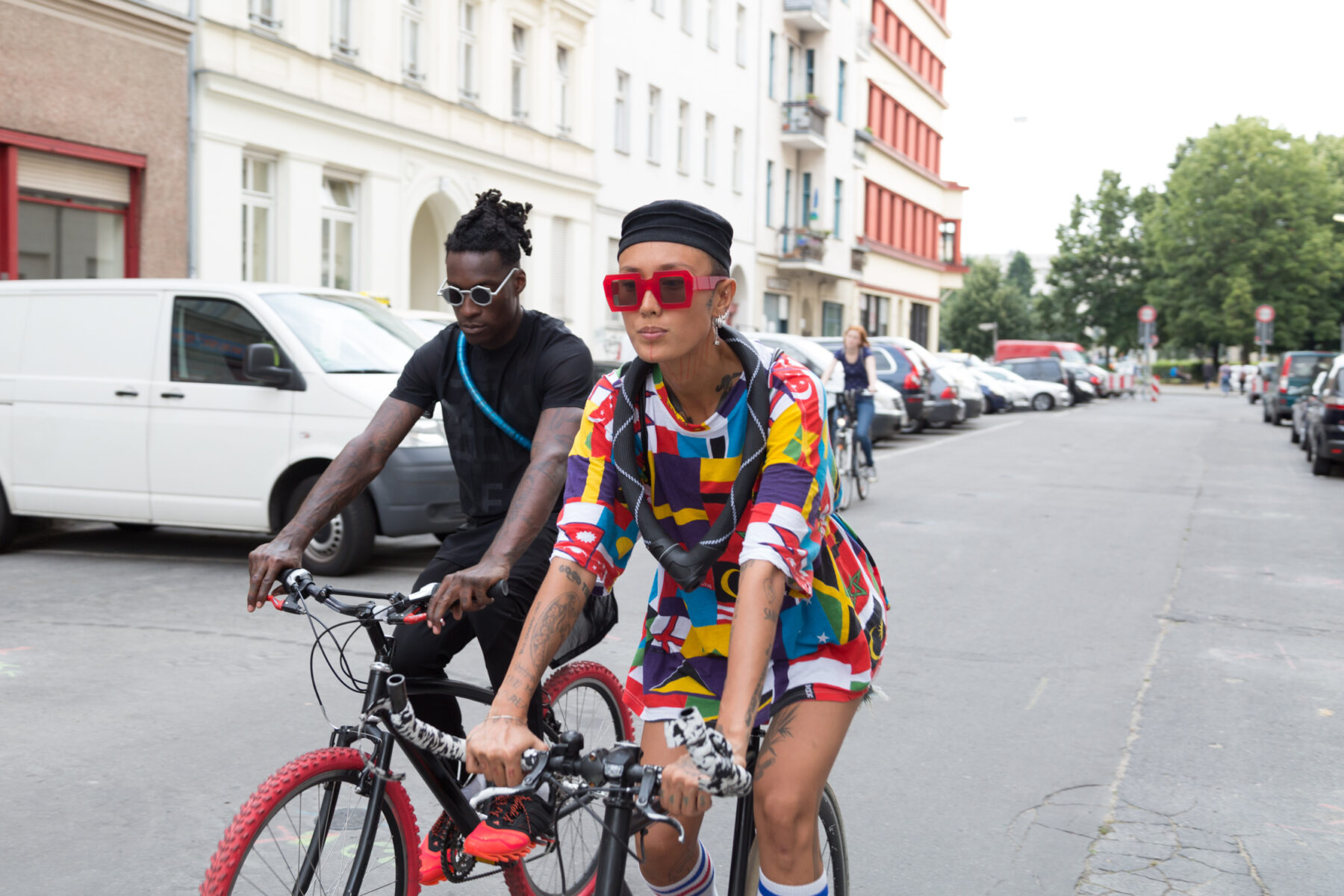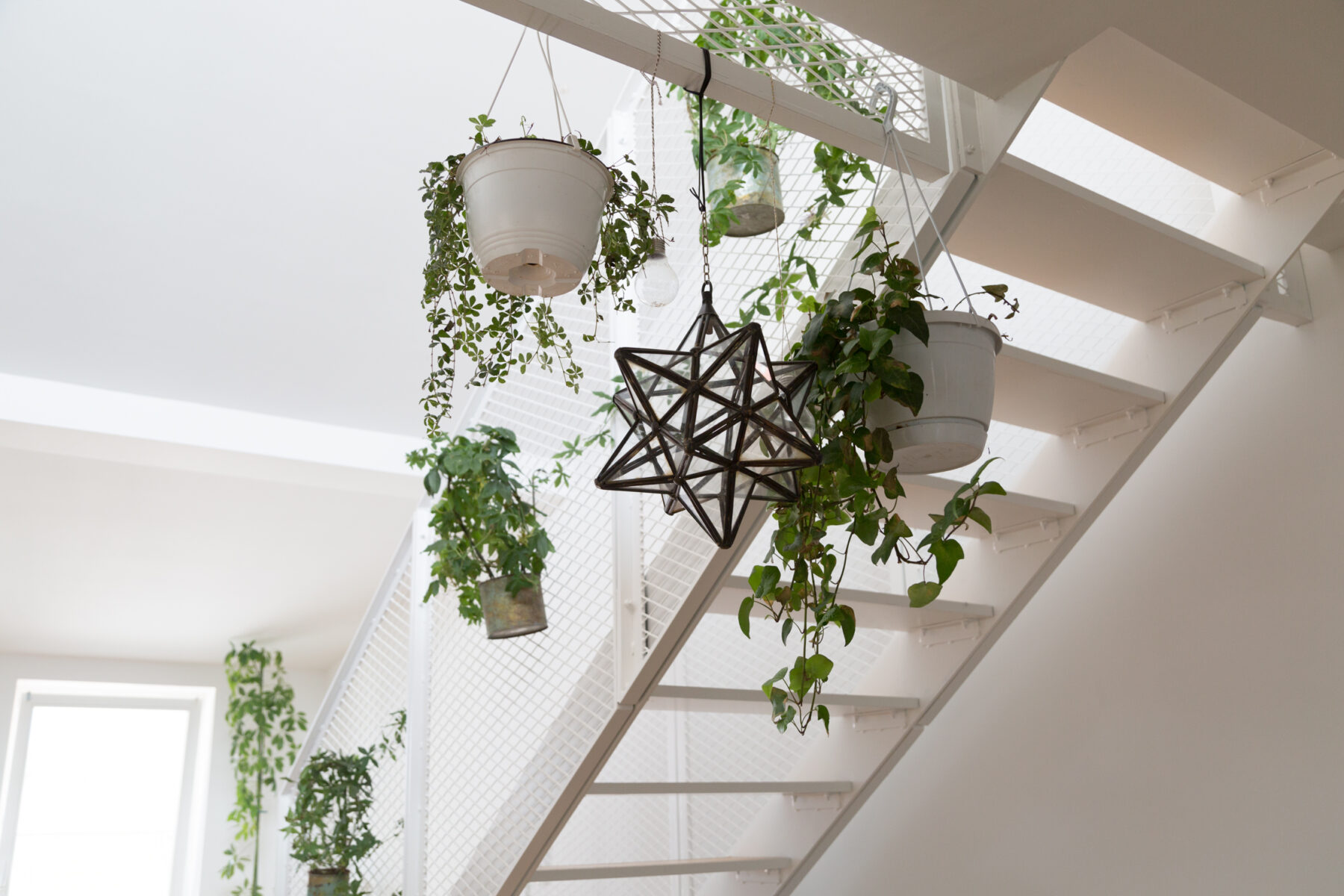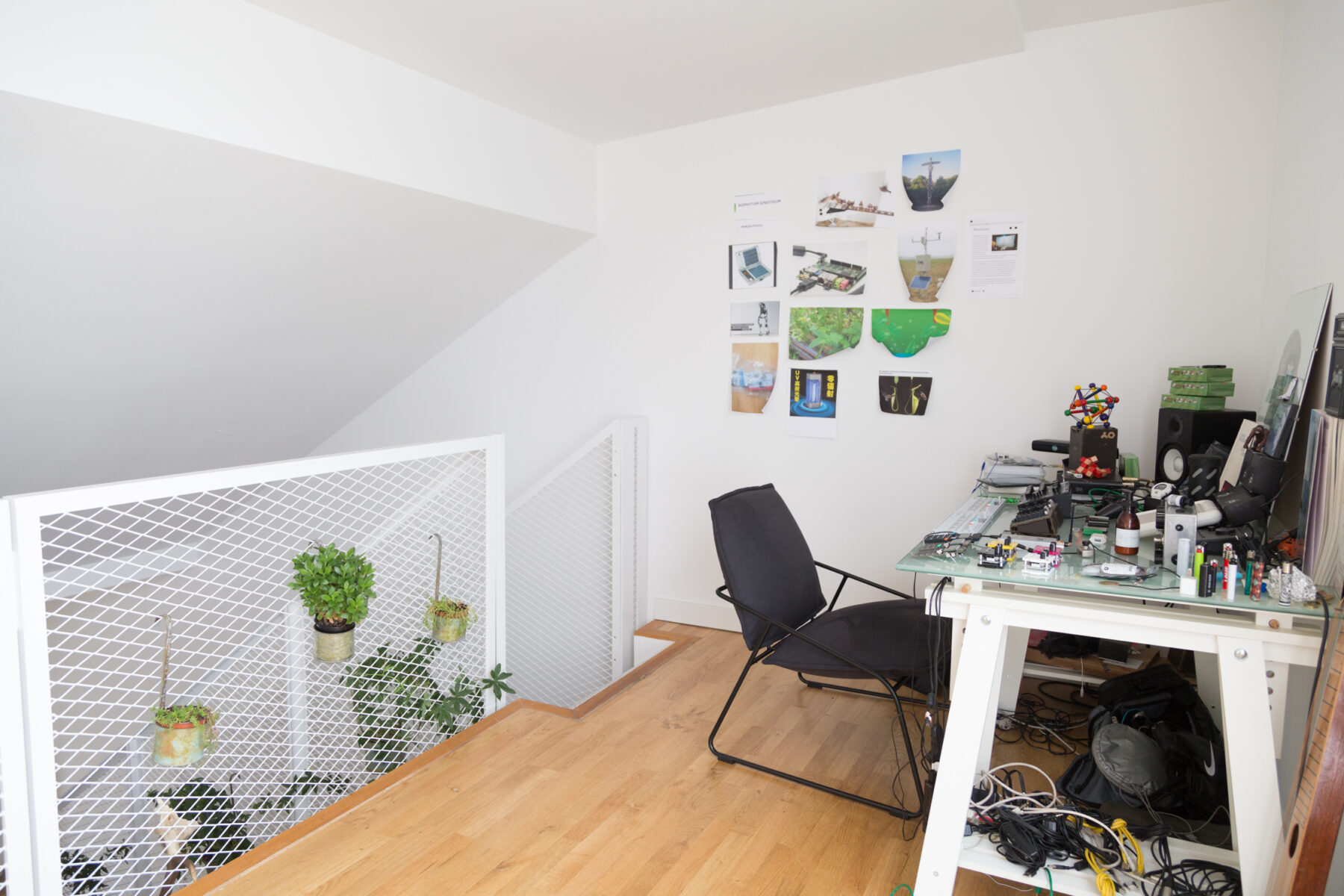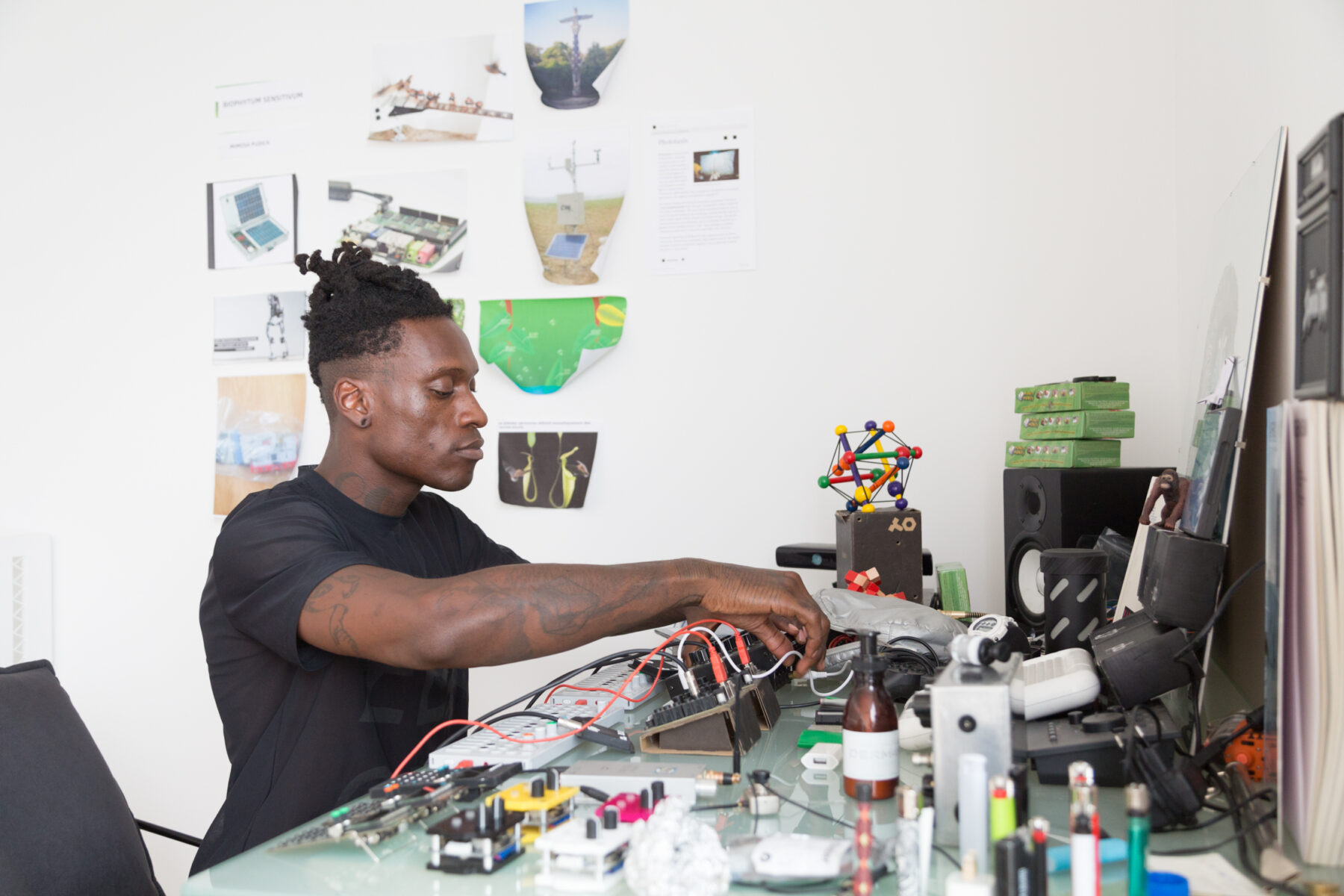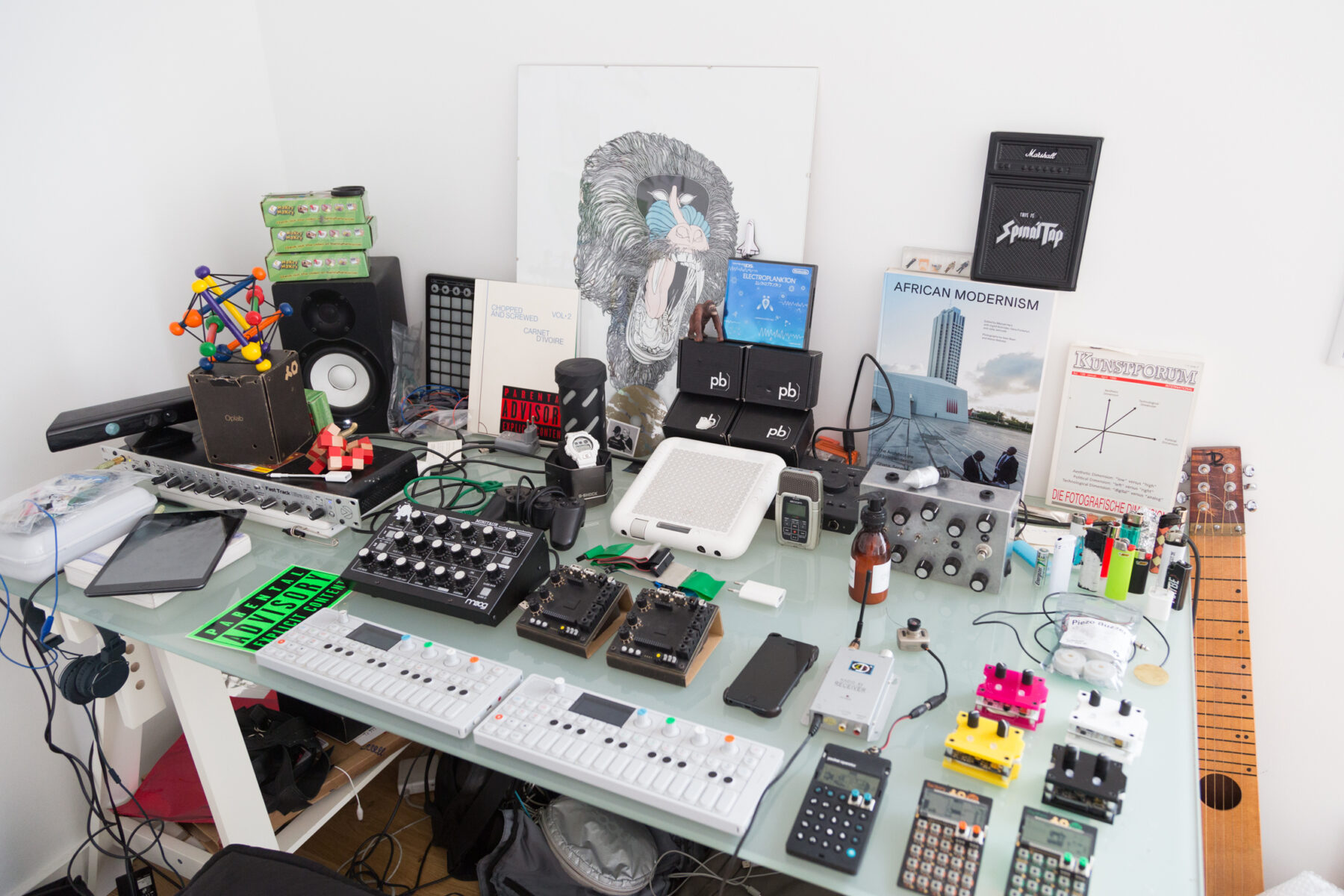First, there are steps. And then there are more steps. And then, there is the view, a field of rooftops punctuated by church spires.
Climbing up to Fa’ Empel and Kirikoo Des’ apartment on the top floor of a beautiful turn-of-the-century building in Berlin feels like an important life lesson: nothing worth having comes easy. Model and designer Fa’ and her partner Kirikoo, a dancer, performance artist, digital artist and musician have taken several steps of their own – with plenty of twists and turns along the way – before settling in their Kreuzberg apartment.
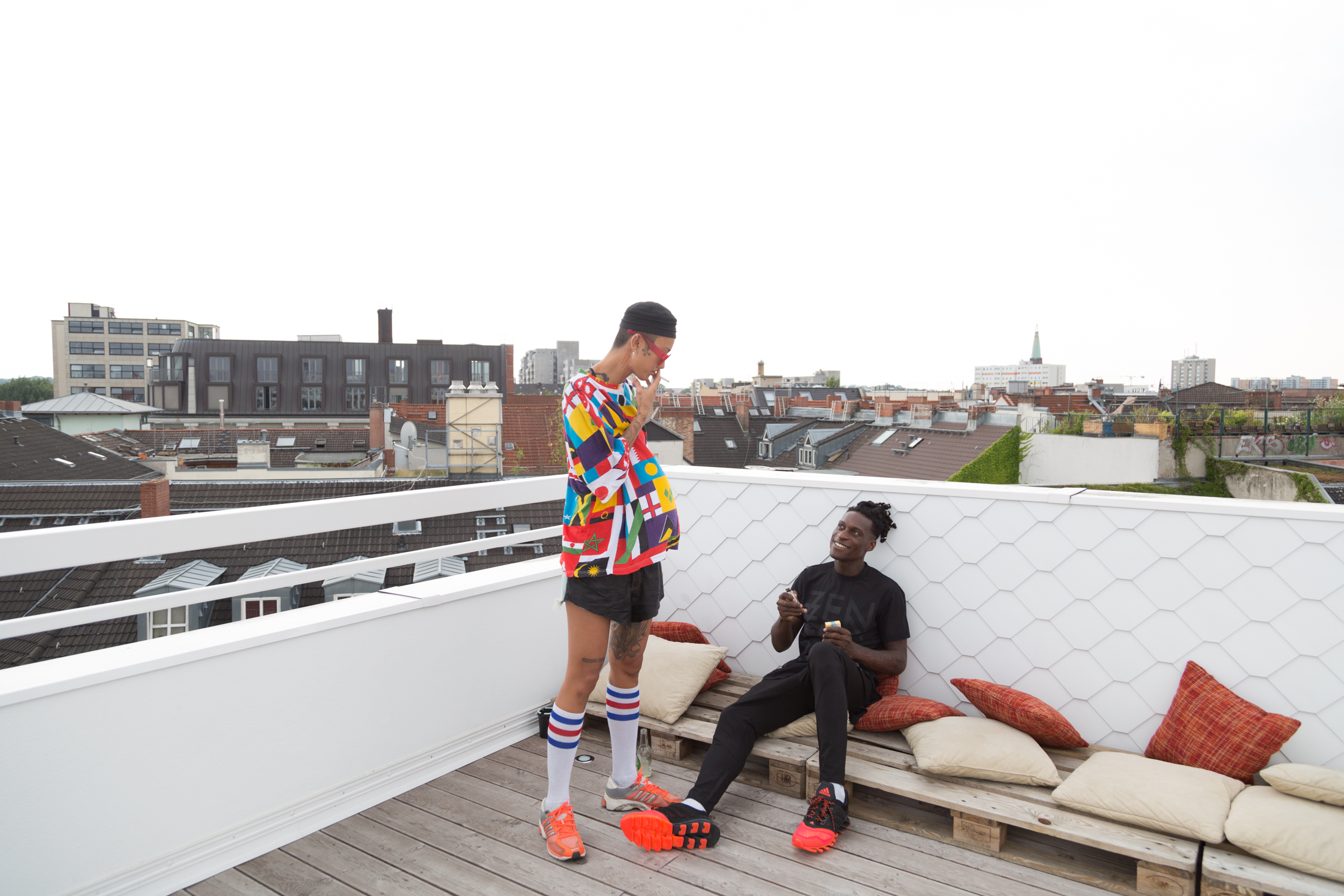
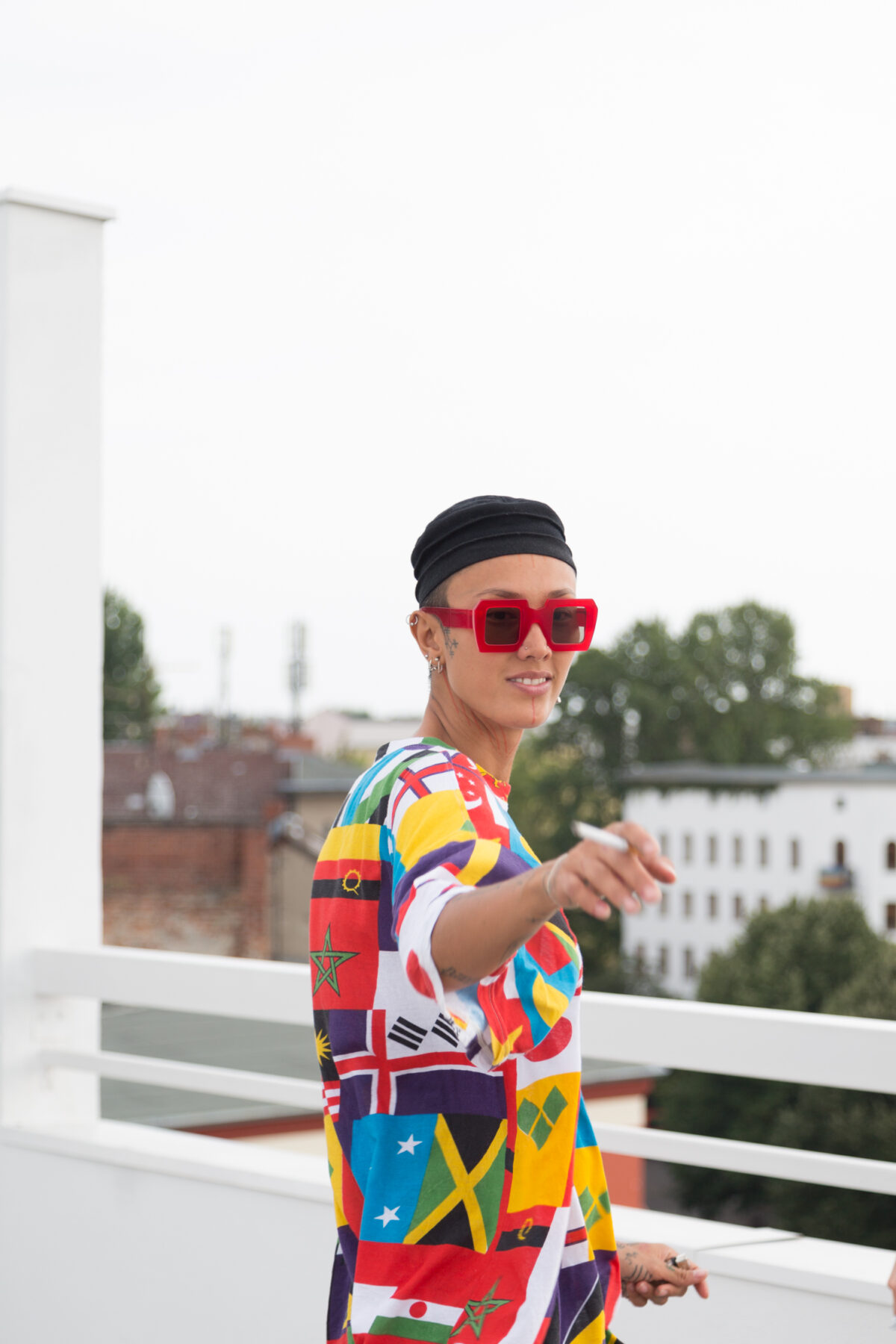
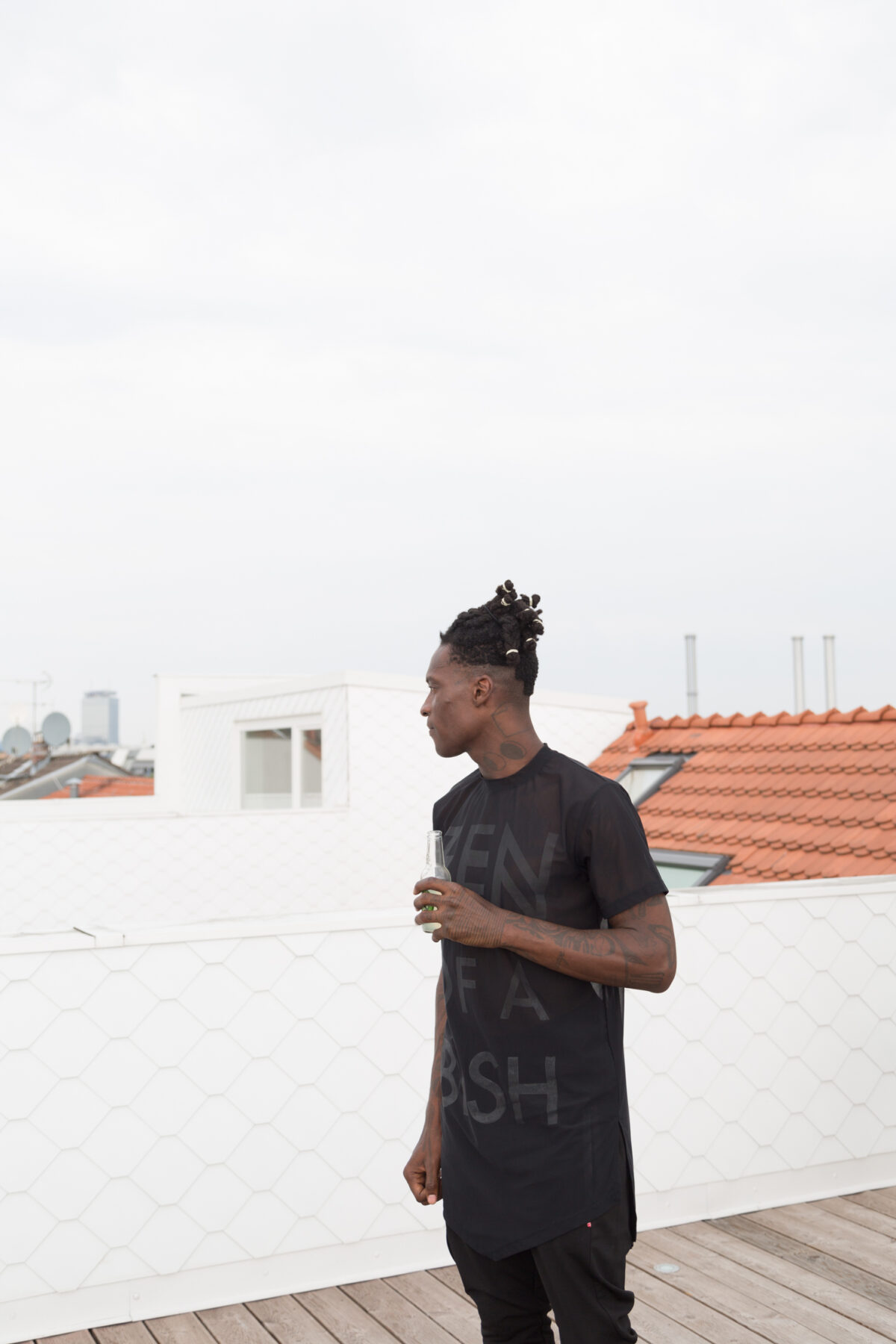
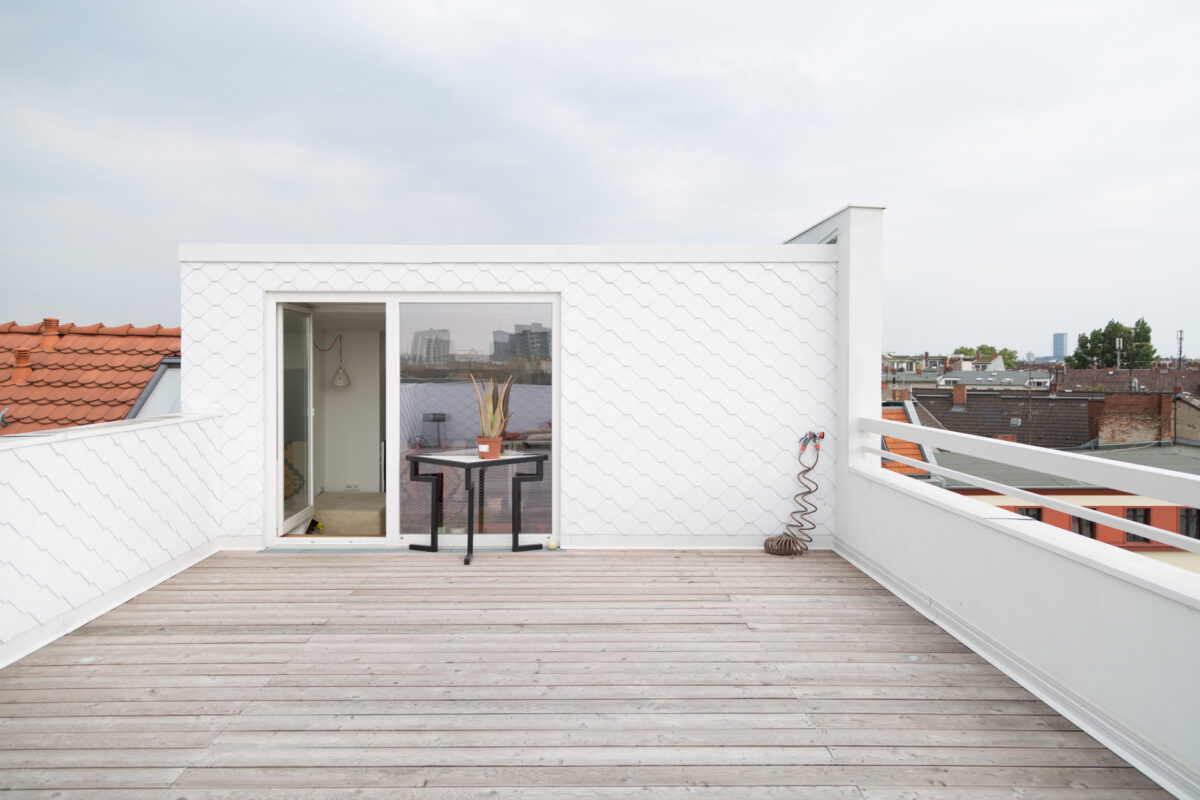
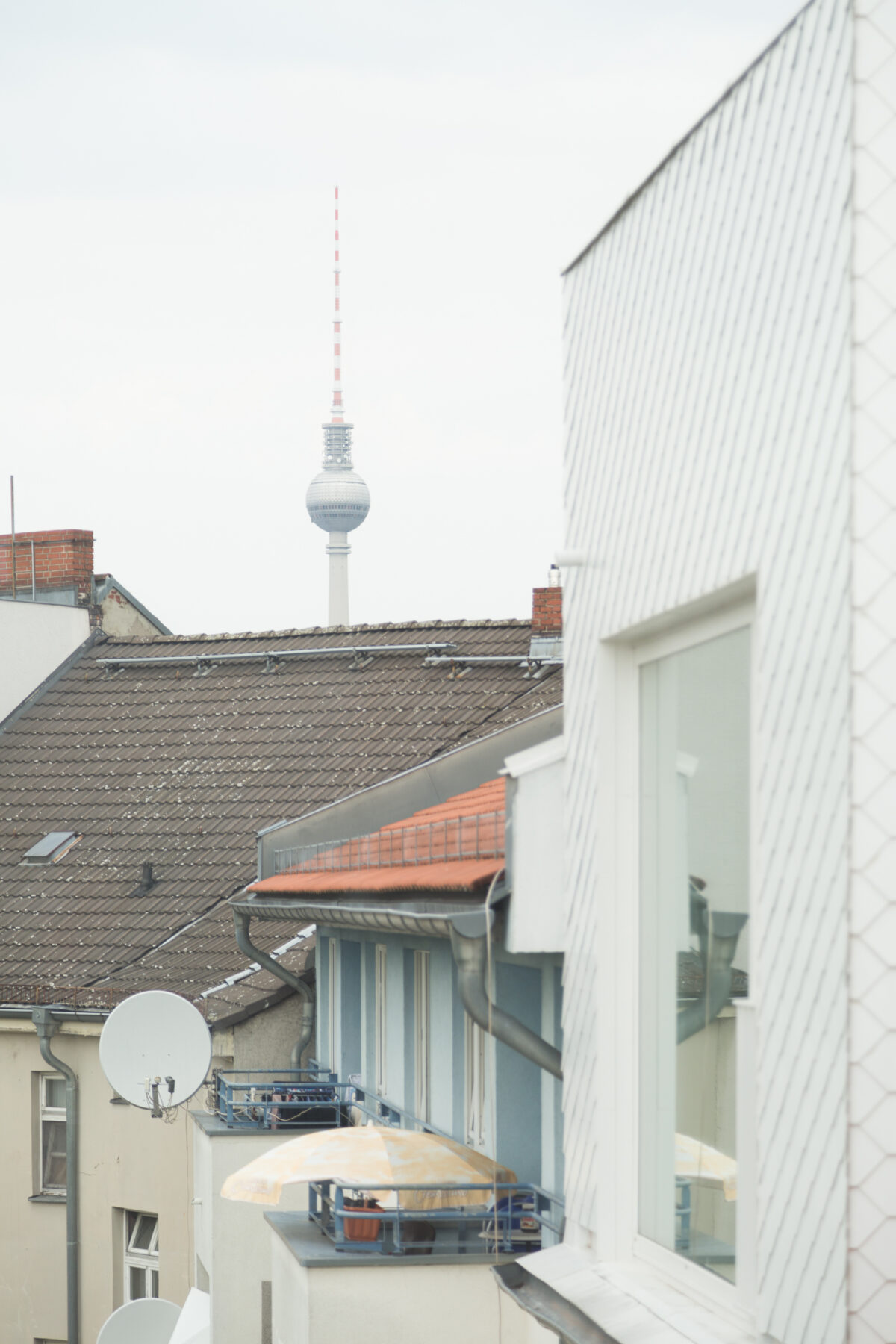
“In a way, I‘d love to keep the mindset of a four year old. Zero to four is the time we learn the most. I just want to keep learning.” – Kirikoo
The flat smells of untreated wood and fresh paint. It’s a new start for Fa’, who moved to the German capital from Bali, Indonesia to focus on her eyewear label, PAWAKA, and for native Parisian Kirikoo. Everything up here feels light, easy and airy. The pair move around freely while mellow jazz plays in the background – Fa’ sitting at her desk downstairs, taking calls and checking in with her business manager, Kirikoo setting up his equipment upstairs. There are no walls separating them or their work. Their flat is their collective studio, office, creative playground and place to unwind, which means coordinating the lives of two fiercely independent people. Over the course of our conversation, they shared their thoughts on design, freedom, club culture and their evolving sense of home.This portrait is part of our ongoing collaboration with ZEIT Online, who presents a special curation of our pictures on ZEIT Magazin Online.
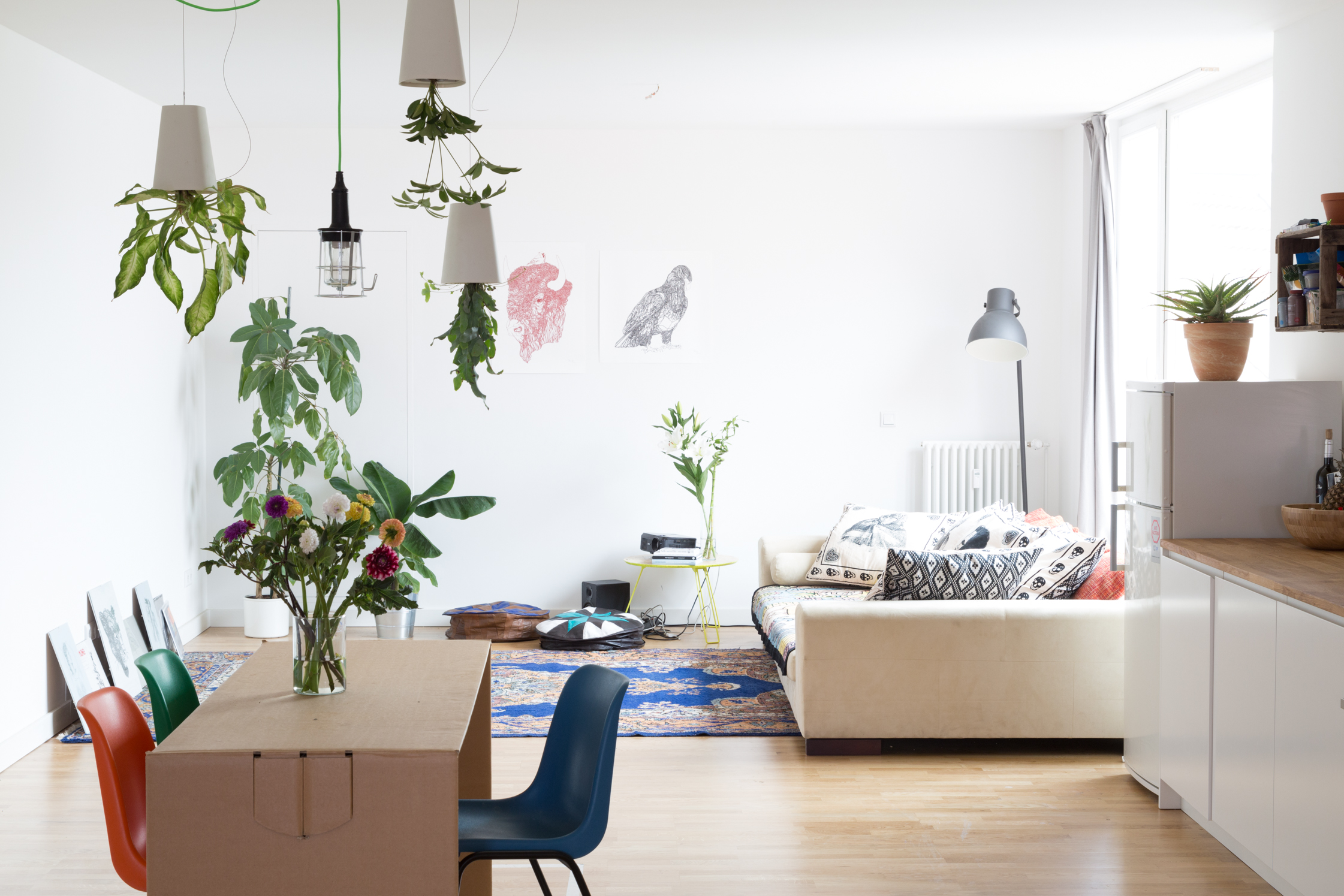
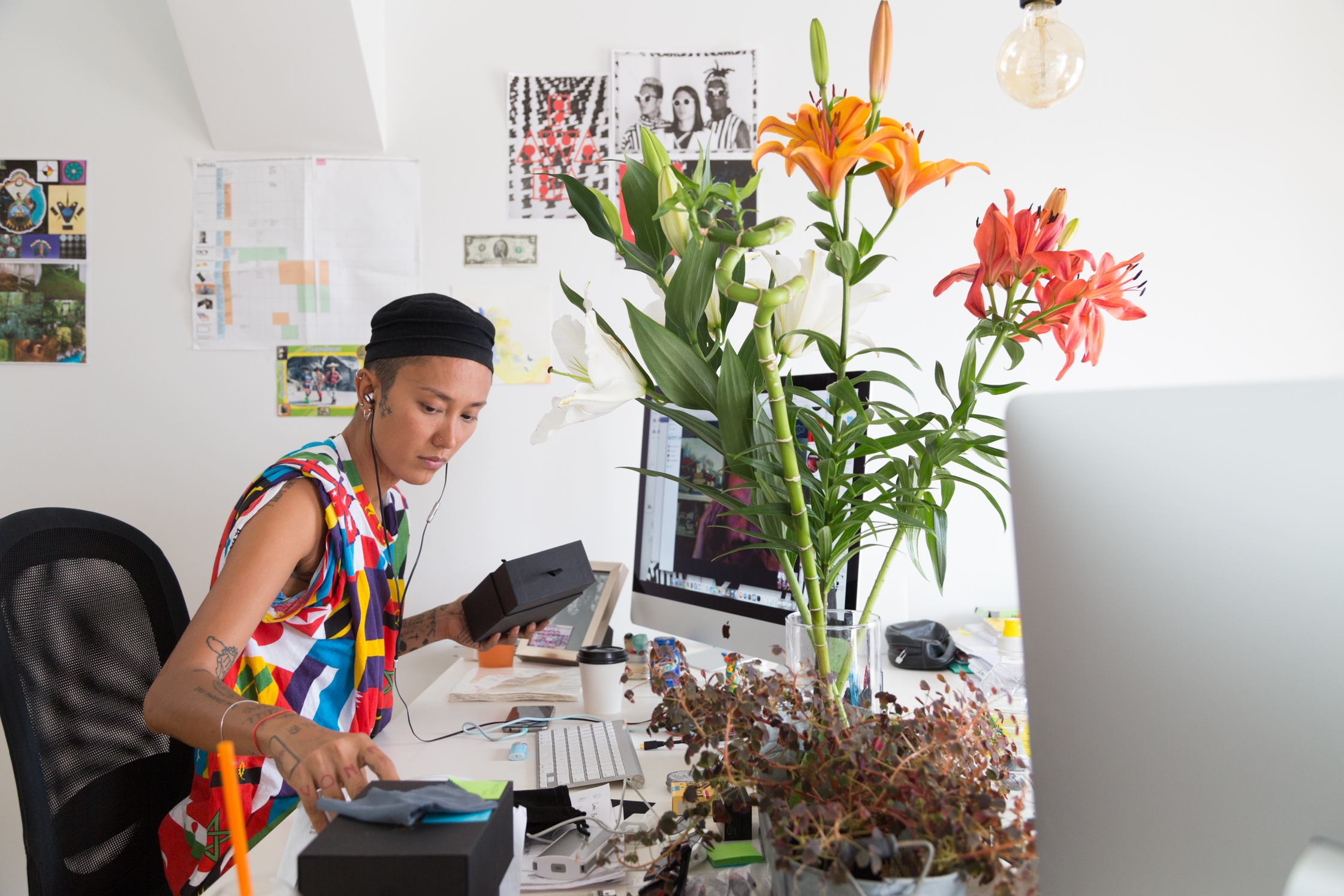
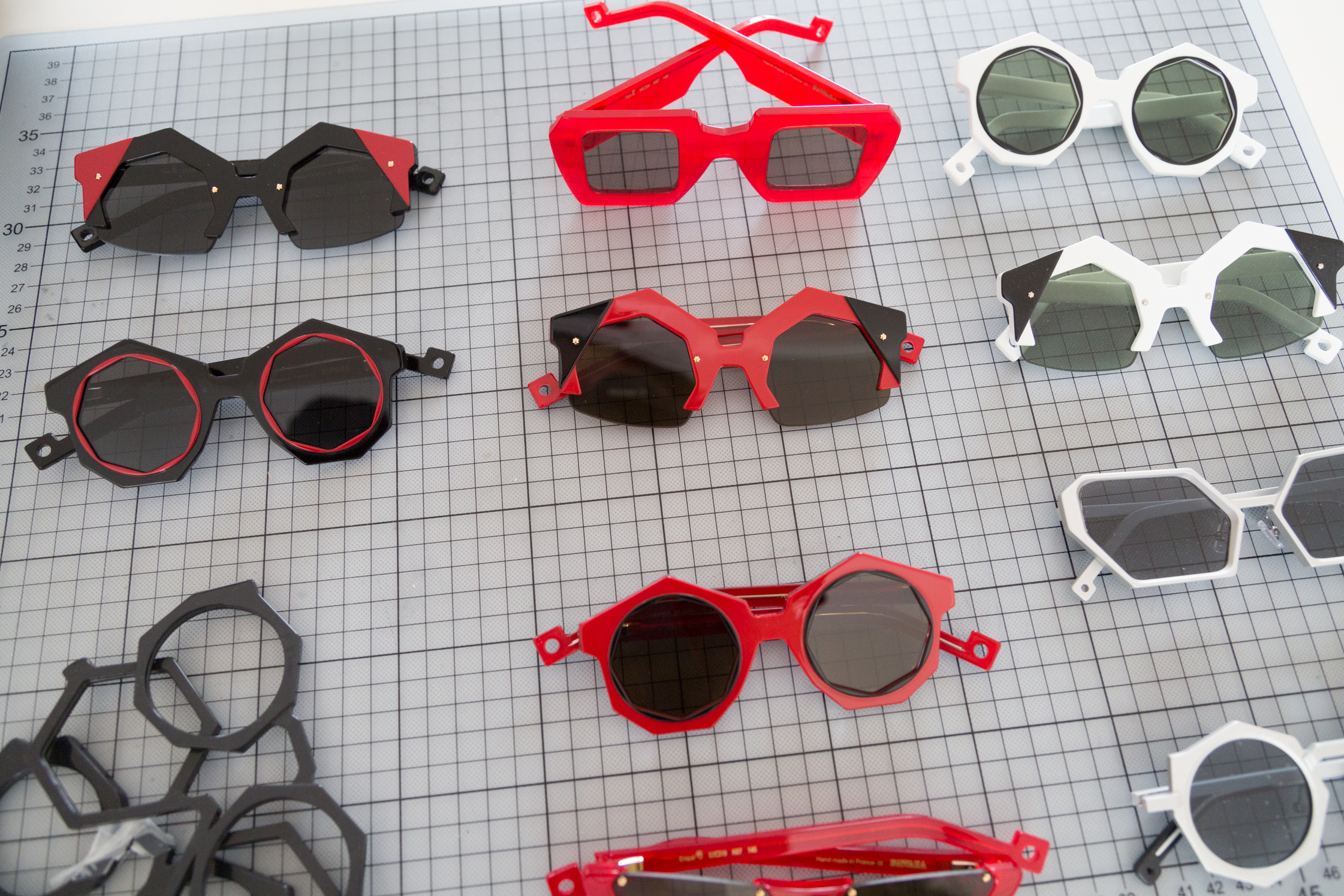
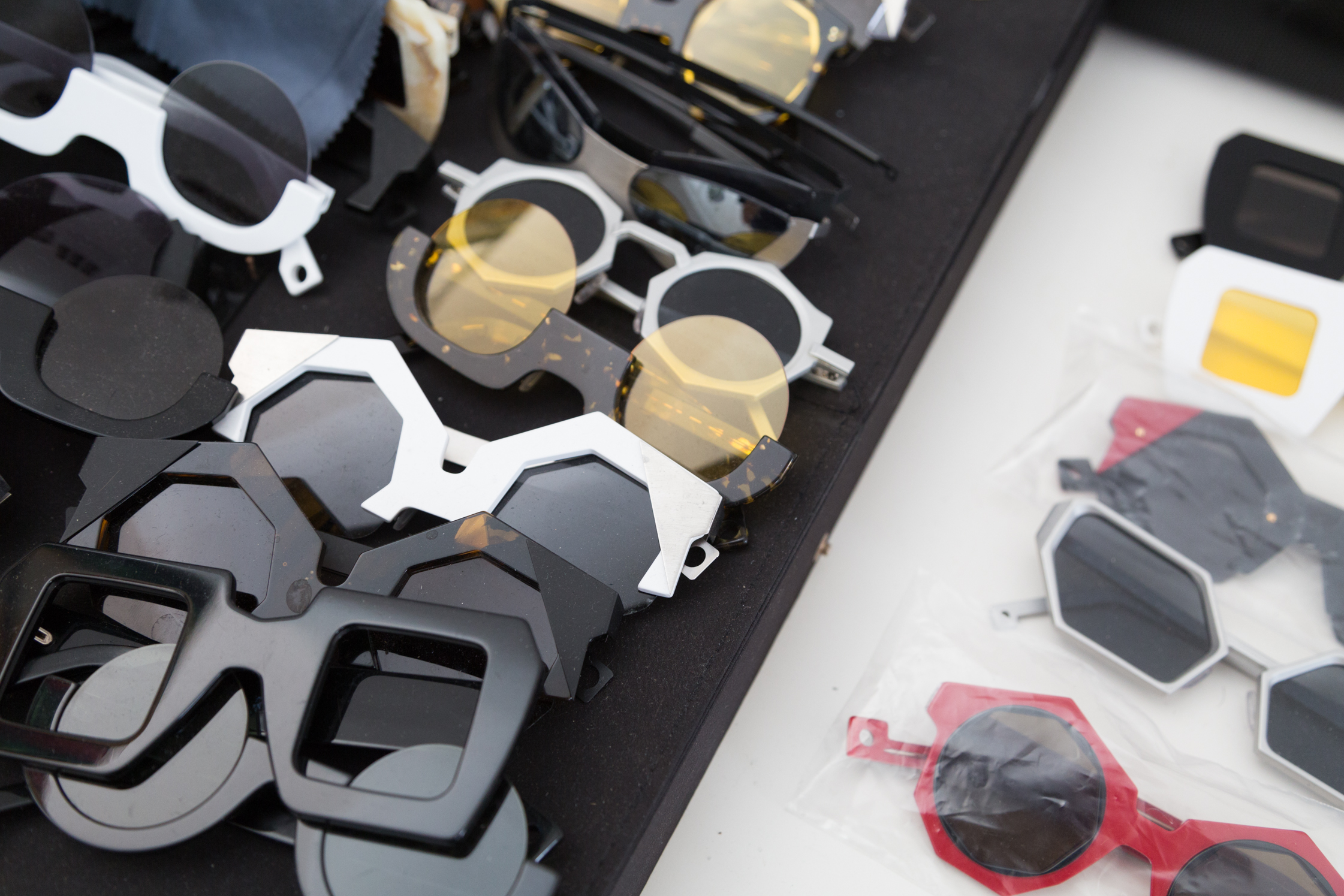
-
You have both lived in different countries and cities. What does home mean to you?
Fa’: I lived out of my suitcase for the last two years. It was fun, especially in my twenties, but I just didn’t feel grounded. I have actually been a registered citizen in Hong Kong, Tokyo, Bali and now Berlin. Kirikoo has lived in the same place in Paris for years and still owns it.
Kirikoo: My place in Paris means a lot to me. It’s my laboratory, where I spend nights making music with my friends. Sometimes, it’s good go back to the source.
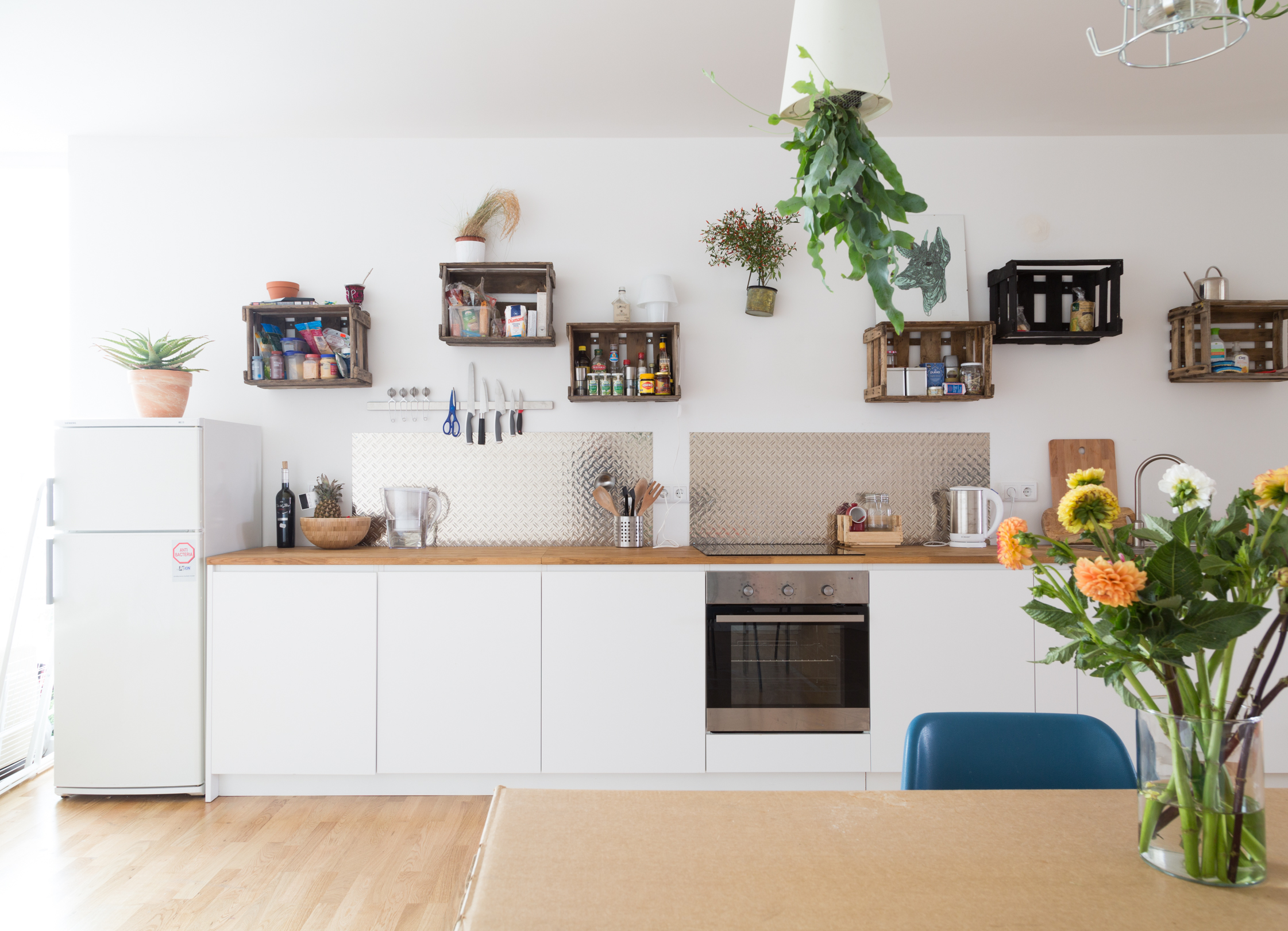
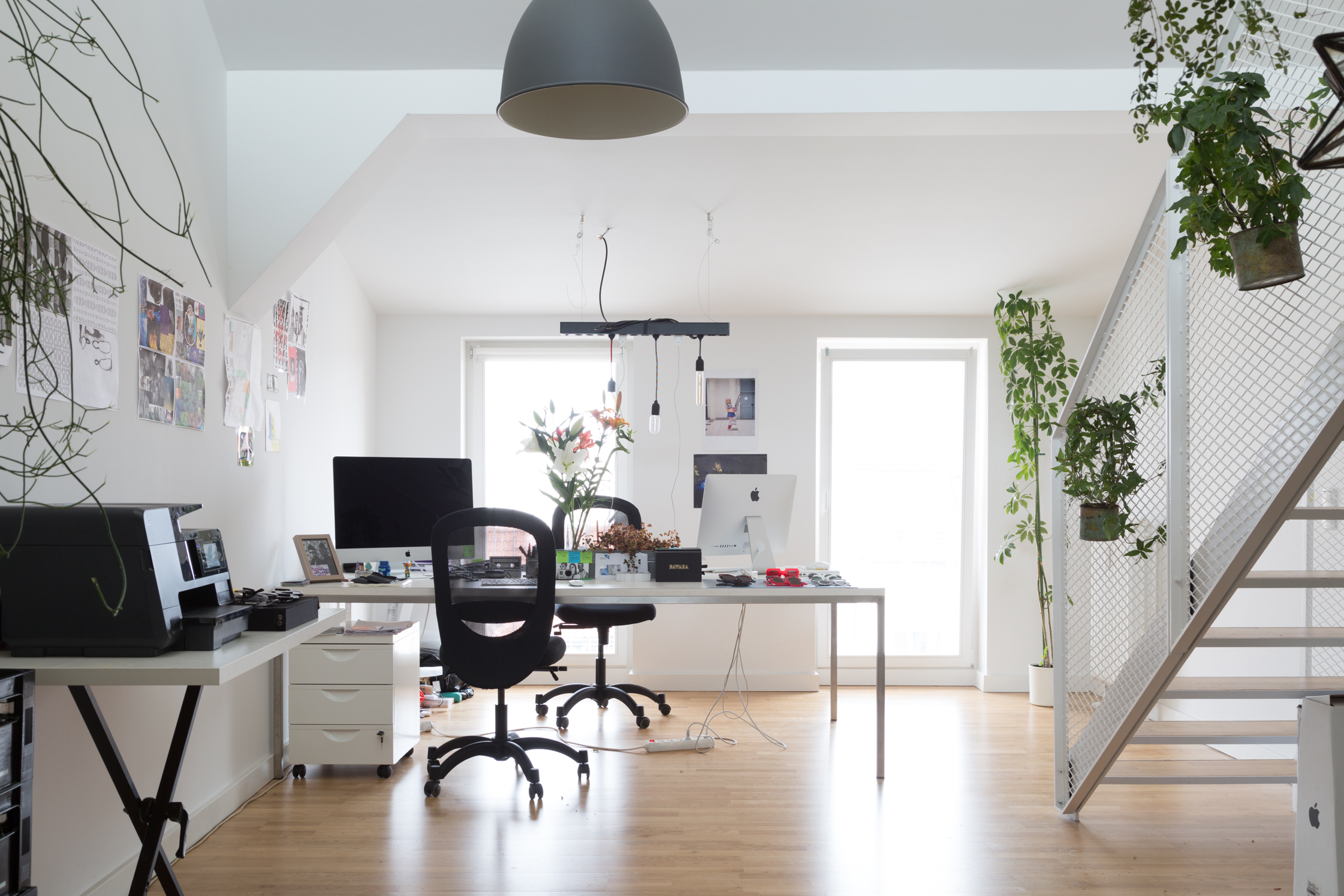
“I lived for five years in a treehouse with no electricity in Bali.” – Fa’
-
Are you feeling at home here?
Kirikoo: Since we moved to this apartment, yes.
Fa’: We just needed a place that is officially ours, well, that’s under our name. This place symbolizes it: This is our home now. We built it together. We decided to move to Berlin together.
-
What made you choose Berlin?
Fa’: We were both just feeling it. I’d only been here twice before moving. But last time, I was just blown away by the energy. Everyone is creative. There’s a great quality of life here and it’s a good location for traveling. There are so many imperfections, which I like.
Kirikoo: The city’s got many layers, Paris is more like a melting pot. I think Berlin is really interesting, but some areas are too gentrified.
-
Moving here from Bali must have been quite a change.
Fa’: Actually, people have this false impression of Bali. It’s not a postcard paradise. Many of the beaches are black and there is a lot of trash everywhere. The island has a lot of natural imperfections – but that‘s what gives it flavor. It’s a different kind of beauty. In that way, for me, it’s similar to Berlin.
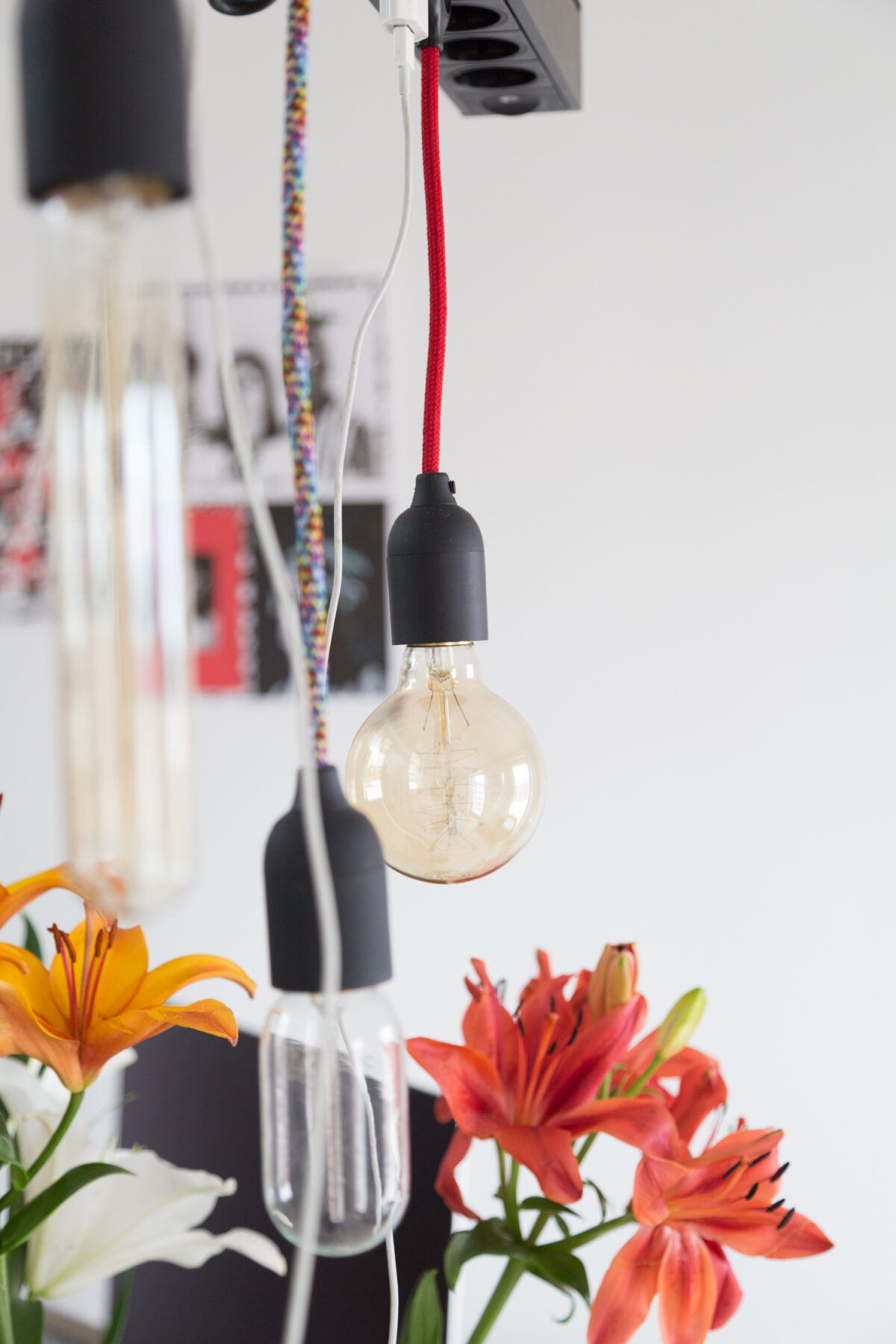
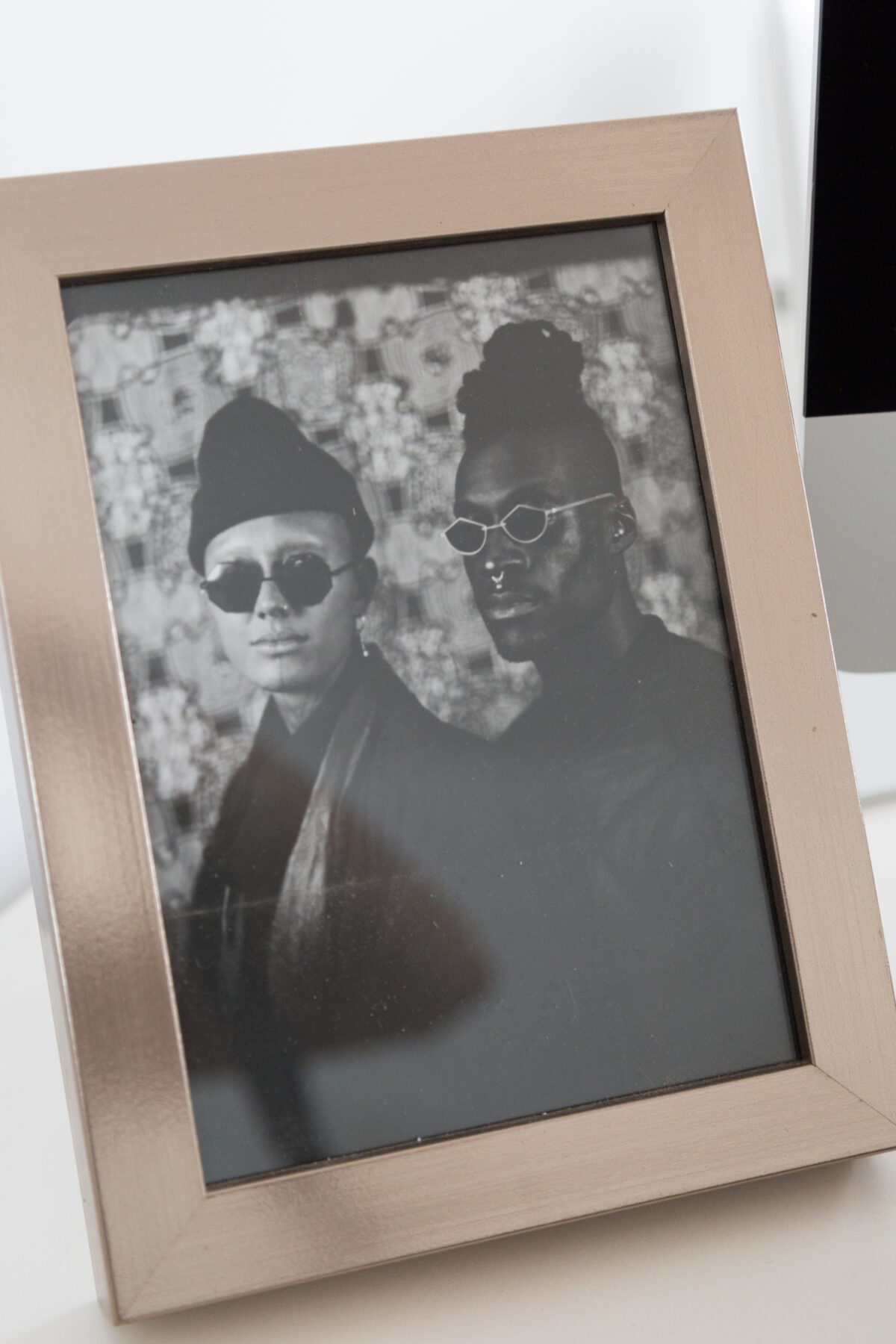
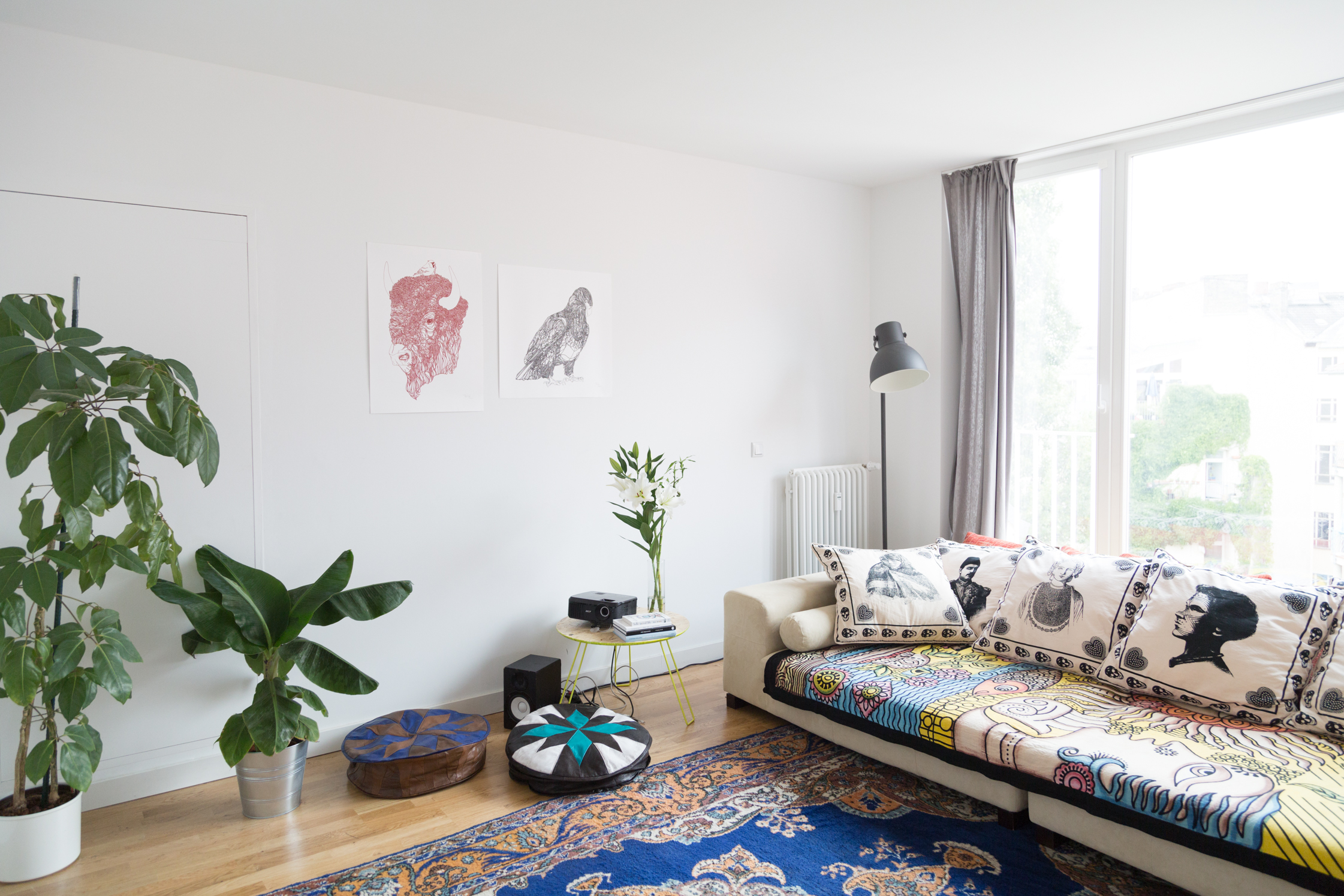
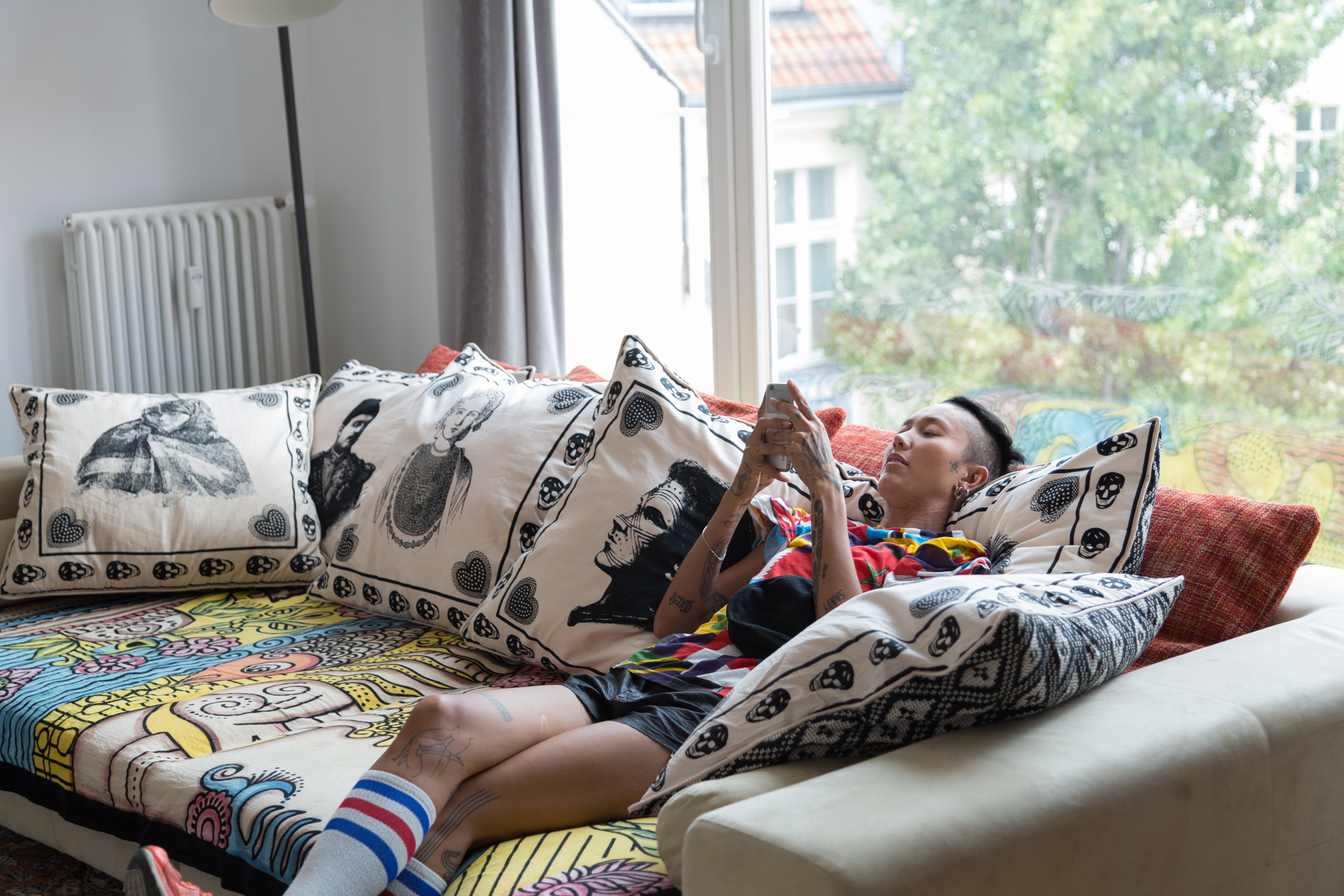
-
Did you use to have a different sense of what “home” means back then?
Fa’: I always used to take my passport with me because I never knew where I would end up. I often went on last-minute trips, especially when I was based in Hong Kong. Everything was just so close – and very cheap. One night, I went out with friends and the next morning, we woke up and just decided to go somewhere. We ended up in the Philippines for a short trip. I think the second you realize you have that freedom, nothing holds you back. Even if you feel there are always going to be things that tie you down, it‘s very important to keep this state of mind of being free.
Jakarta native Fa’ moved to Tokyo at age 16 to kickstart her modeling and acting career. At the same age, Kirikoo got into hip hop dancing, later focusing on classical and modern dance. As a dancer, he has toured with the Tokyo Ballet and CocoRosie.
-
You’re both juggling several creative projects at the same time. How do you compartmentalize?
Kirikoo: My brain is constantly on, so there is no real separation. My life is really connected with what I create. If I can’t work, I can‘t live. It’s my way of life.
Fa’: It comes naturally to me. I never say: “Ok, now I need to only work on this project.” I work on whatever arises or I feel inspired to do. Everything is connected – modeling and the label go side by side. At the moment, the label is my priority.
-
When did you realize that you wanted to move away from full-time modeling?
Fa’: A long time ago. It was a good opportunity for me to connect with people around the world and I’m really grateful. But after nearly ten years, I felt like there was nothing further for me to gain. At the end of the day, it really is a shallow world if you let it consume you.
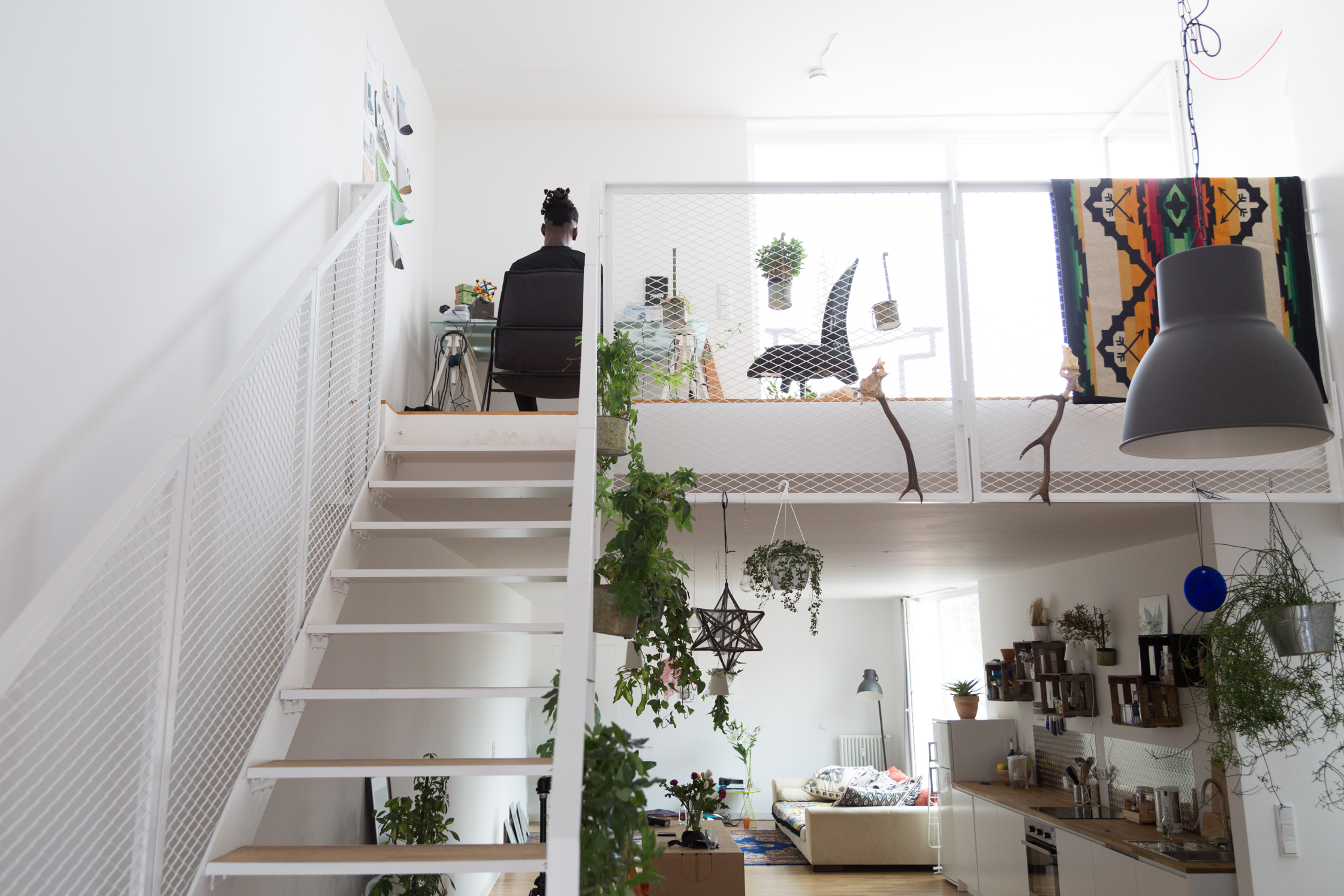
“It‘s not about consciously moving away from something, it‘s about staying true to who you are in spite of the mainstream.” – Kirikoo
-
How did you first start out as a designer?
Fa’: I was living in Bali and everyone around me was constantly creating. It inspired me to explore design. At first, I was making leather shoes. Then I did a ready-to-wear collection called Pawaka. In the end, it didn’t work out with the Japanese investors I had been working with, but as Pawaka is my middle name, I’ve carried it over to my current label.
-
Did being part of the fashion industry change your perception of beauty?
Fa’: When I was in Japan, they wanted me to be fair-skinned and have a certain look, but I knew I wasn’t going to conform. In a way, tattoos were my way out of modeling. That’s not why I chose to get tattoos, but subconsciously I knew that I’d get fewer jobs if I did. My first piece was just a phrase, then I went back to get another one the next day.
-
Just like that?
Fa’: Yes! For me, tattoos symbolize the moment I choose to get them. I do it because I feel it – so they are part of my identity. It‘s great because, nowadays, the modeling work that I’m offered are projects that I really want to be involved in.
Upstairs, what looks like the insides of a computer lie spread out on the table. This is Kirikoo’s digital orchestra. Music has always been part of his life, and when asked about his passion, his face lights up. At first, the pair seem reserved and cool, but after a while, their warmth shines through.
-
What’s the idea behind your tattoo installations, Kirikoo?
Kirikoo: The idea was this: electronic music is getting more and more experimental and expensive, so young artists often think they need all the equipment the big producers use. For me, it’s more about explaining that the body’s senses can also work as an interface. Tattoos show what we once used as an art form, as opposed to this digital work we create today. To me, the process is simple: the needle is connected to a digital sensor and when it touches the skin, it triggers sound that creates the music. The needle is a sound generator.
-
You have some interesting books about art theory.
Kirikoo: I don’t always like intellectualizing art. It gets very scholarly. But I recently read a great book – the author turns art into a system, interlinking it with software, which I think is really great. Technology and the social system are basically the same.
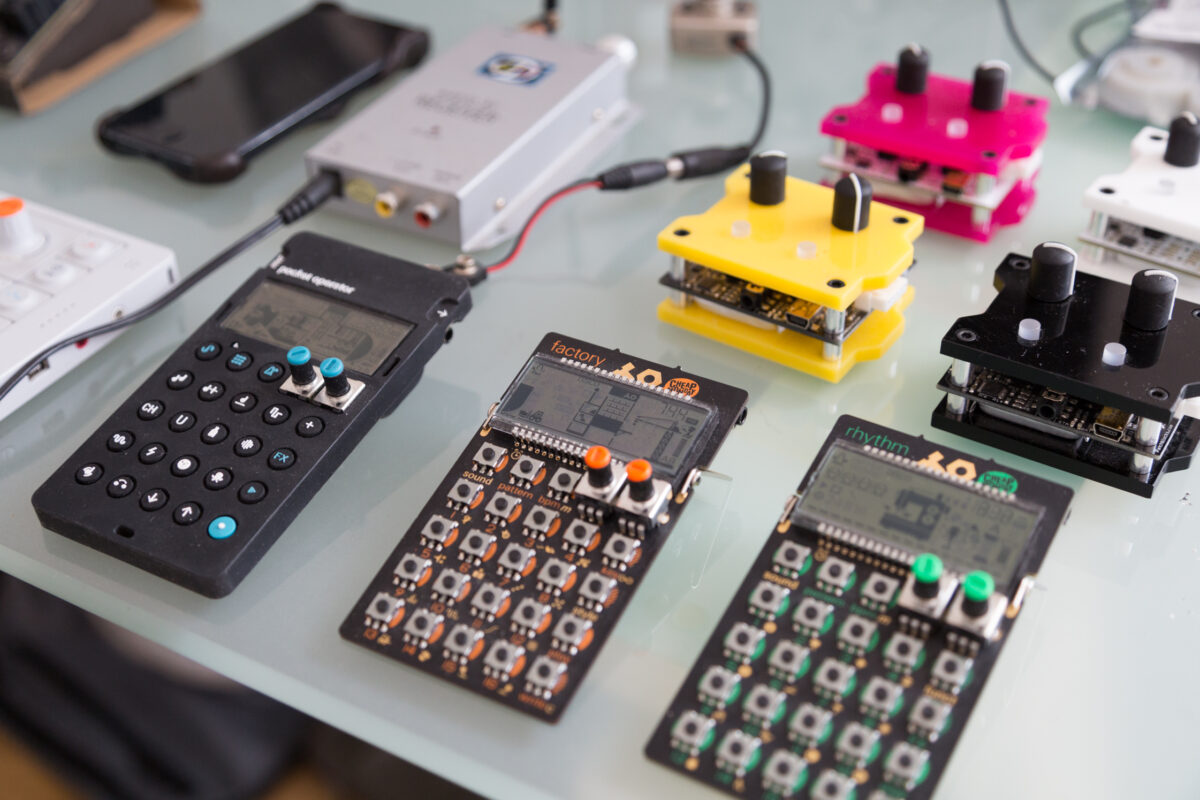
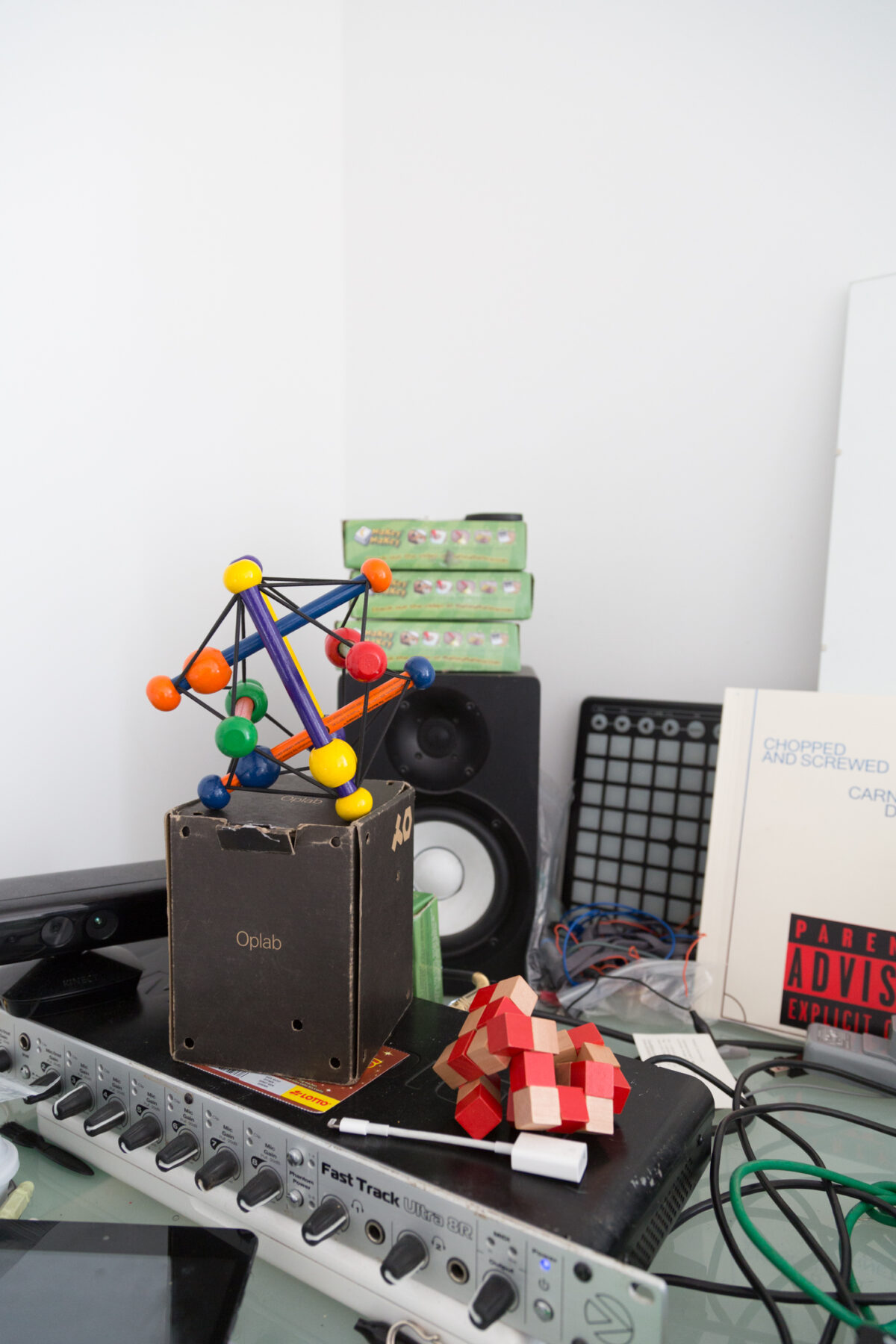
“Independence is imperative to me. I think you can‘t put people in a box. I evolve as a person everyday. I meet new people and they change my perception. I just do something that is interesting to me and I like to share my vision with everybody.” – Fa’
-
You both live and work in your apartment. How difficult is it to share your creative space?
Fa’: It’s not always easy, but we try to coexist. We agreed upon it from the beginning. For me, not being able to separate living and working is generally difficult. I like to have a separation of the two, so when I’m home, I’m home. Right now, my computer is just over there, and it’s really hard to draw the line. But it’s temporary. Eventually, each of us needs our own creative space.
Kirikoo: I used to work 24 hours a day, so now I have to adapt. Generally, I’m not too concerned about space, because it’s about what you do with it. When I’m playing music, it doesn’t matter where I am. I just feel on top of the world. That’s why I always have my iPad with me.
Fa‘: It’s his second head.
It’s just a short bike ride to our next destination, Prinzessinnengarten, an urban gardening project launched in 2009. As the couple cruise around the streets of Kreuzberg, they definitely look like the coolest kids on the block. Amidst wild-growing herbs and vegetables, we continue our conversation.
-
This garden is beautiful. Is this where you unwind?
Fa’: Yes, I usually come here once a day. Nature is where I find peace; green just really calms me down. I lived for five years in a treehouse with no electricity in Bali. I would like our kids to grow up somewhere where there is nature. Especially today, when everything is ruled by technology. In Jakarta, where I grew up, you do everything indoors, because there’s a lot of pollution. You wake up, go to school, there’s A/C everywhere, then you go to the mall.
Kirikoo: Just like in the suburbs where I grew up. But I went to my grandma’s house in Bourgogne every summer – so I knew where the milk came from. I was very happy there and think it really shaped me.
Since taking a step back from modeling, Fa’ has taken on passion projects and appeared in numerous music videos. Up-and-coming musician Oskaar tapped into her stark and savage movements for his sultry Future R&B single, “Never Met You,” and the results are mesmerizing.
-
What else inspires you?
Kirikoo: It’s not only about a place or a mindset, people also play a big part in it. Connecting with humanity and having inspiring conversations is where I draw energy from. But I don’t need much to get inspired. My inspiration is in my brain. In a way, I’d love to keep the mindset of a four year old. Zero to four is the time we learn the most. I just want to keep learning.
Fa’: Traveling is important to me – it’s where I tend to get my inspiration from. If I stay in one place for too long, I feel trapped in a routine. It happens every now and then, and I don’t feel good when it does. It’s also a state of mind. I’m trying to learn to be less dependent on the outside and just be happy, because if you’re happy, you‘re free. You can draw inspiration from everything.
Inspiration is something that comes to me everyday – it just happens. I like geometry, sharp lines and strong edges. But design also has a rational side: I have to work with what’s available and accessible.
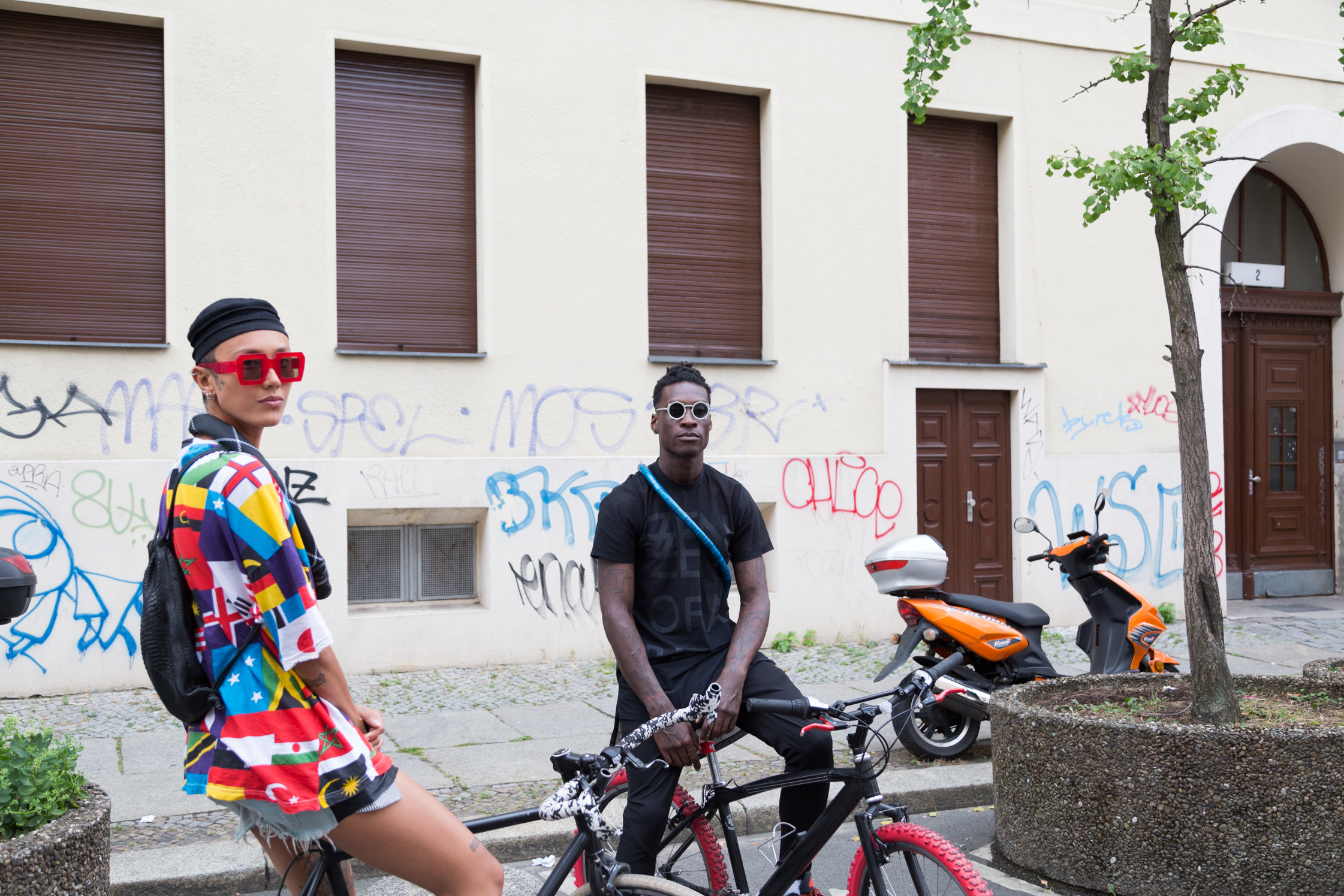
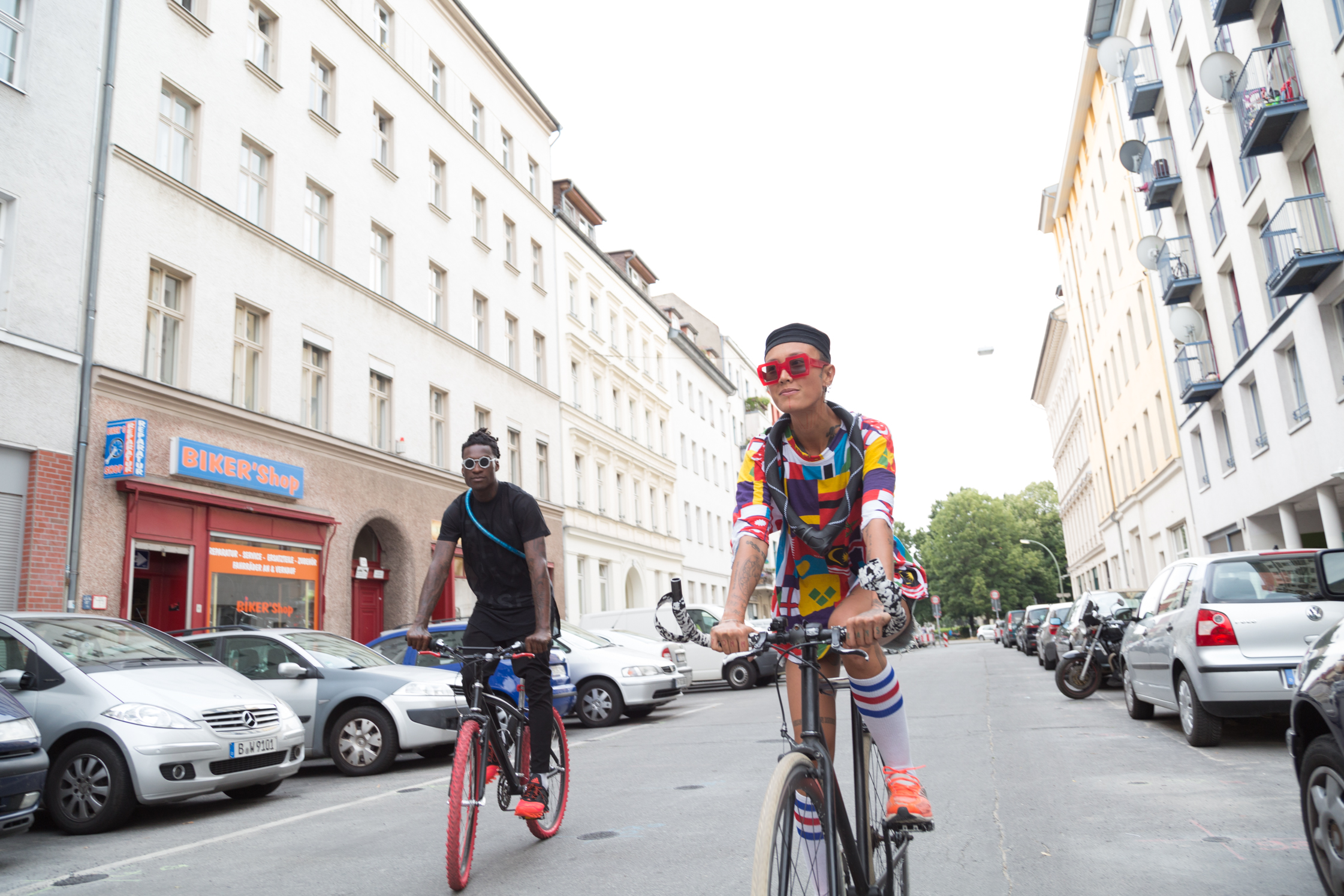
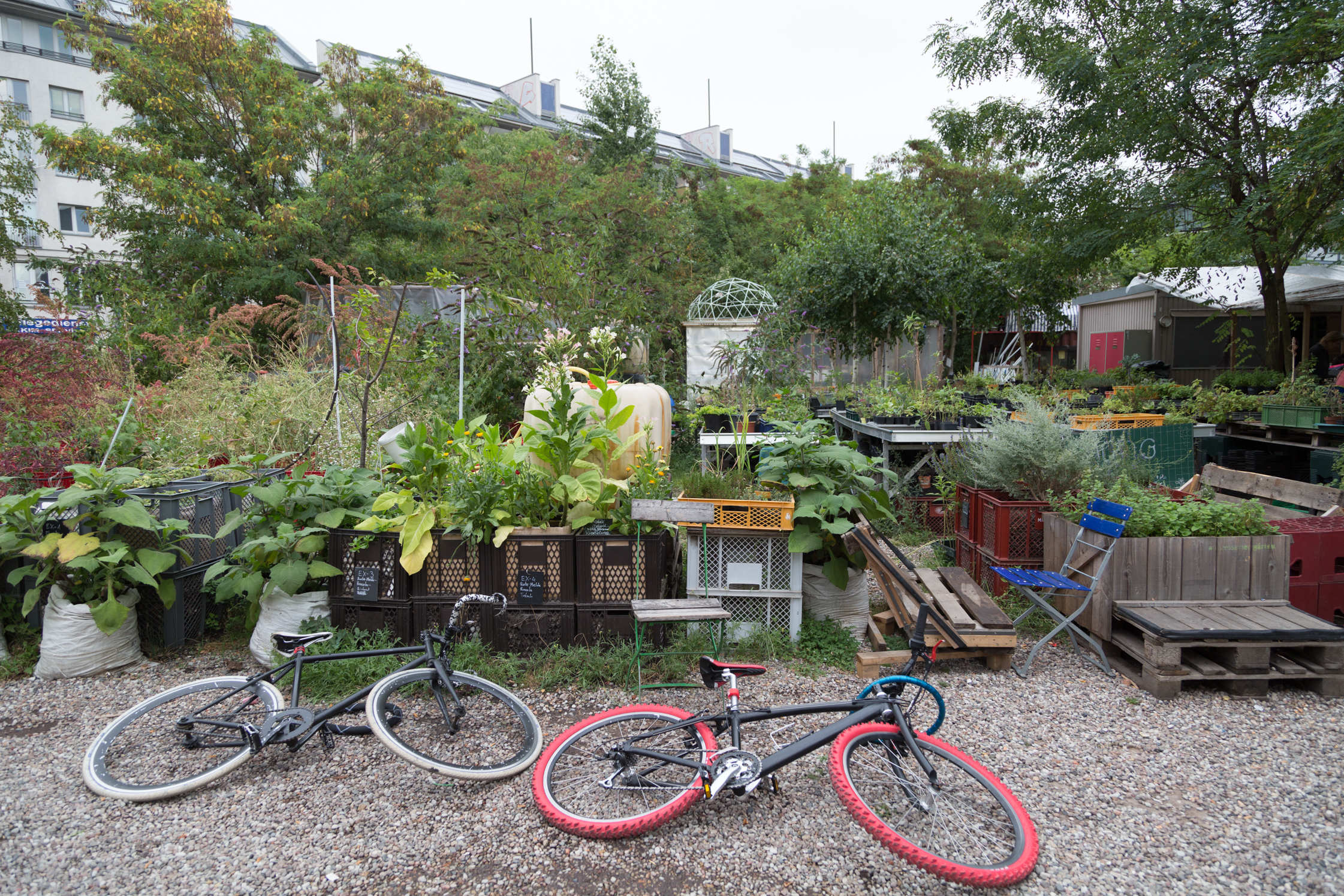
-
You both started your careers very early. How did you find the courage to get up and leave?
Fa’: I used to dream and execute; now, I have to plan a little in between. I was very independent from the beginning and always wanted to explore. I remember asking my mom if I could go to school in Singapore, because my best friend was sent to boarding school there. She was like: “you’re eight.” (laughs)
When I went to school as a kid, I never felt like it was the right place for me. It’s not like I was rebellious – the routine just wasn’t me. I never felt like I belonged. That’s why I left for Hong Kong at age 16 and tried to find my own way. Luckily, my parents supported me. My mom told me I could always finish school later. I still haven’t finished.
Kirikoo: I’m an only child and was very independent from an early age. I was able to have this lifestyle by doing my sport. It was my chance and I felt extremely lucky. When I was working and touring as a dancer, my life was so different – then, I used to go back to my hood in Paris and everything was back to normal again. The two worlds were polar opposites. But now I‘m used to it. When I go back home, I see my friends and we go out a lot. Even though there are so many clubs here, we have a very peaceful life in Berlin, so again, it’s quite the opposite.
-
You don‘t like the club scene in Berlin?
Kirikoo: It’s lost its charm, in a way. It’s kind of like smoking weed in Amsterdam. Club culture often seems very repetitive. It’s not about connecting people, even though that’s what it should be about. I love the idea of using a club as an interface, where both the music and the people influence each other and it becomes a shared experience.
-
Your installations often combine music and dance. Is this your way of trying to create this shared experience?
Kirikoo: For me, music is a bridge. It helps people to understand my installations better because the music is something they can connect to. There is something instinctual in art, something that connects us all.
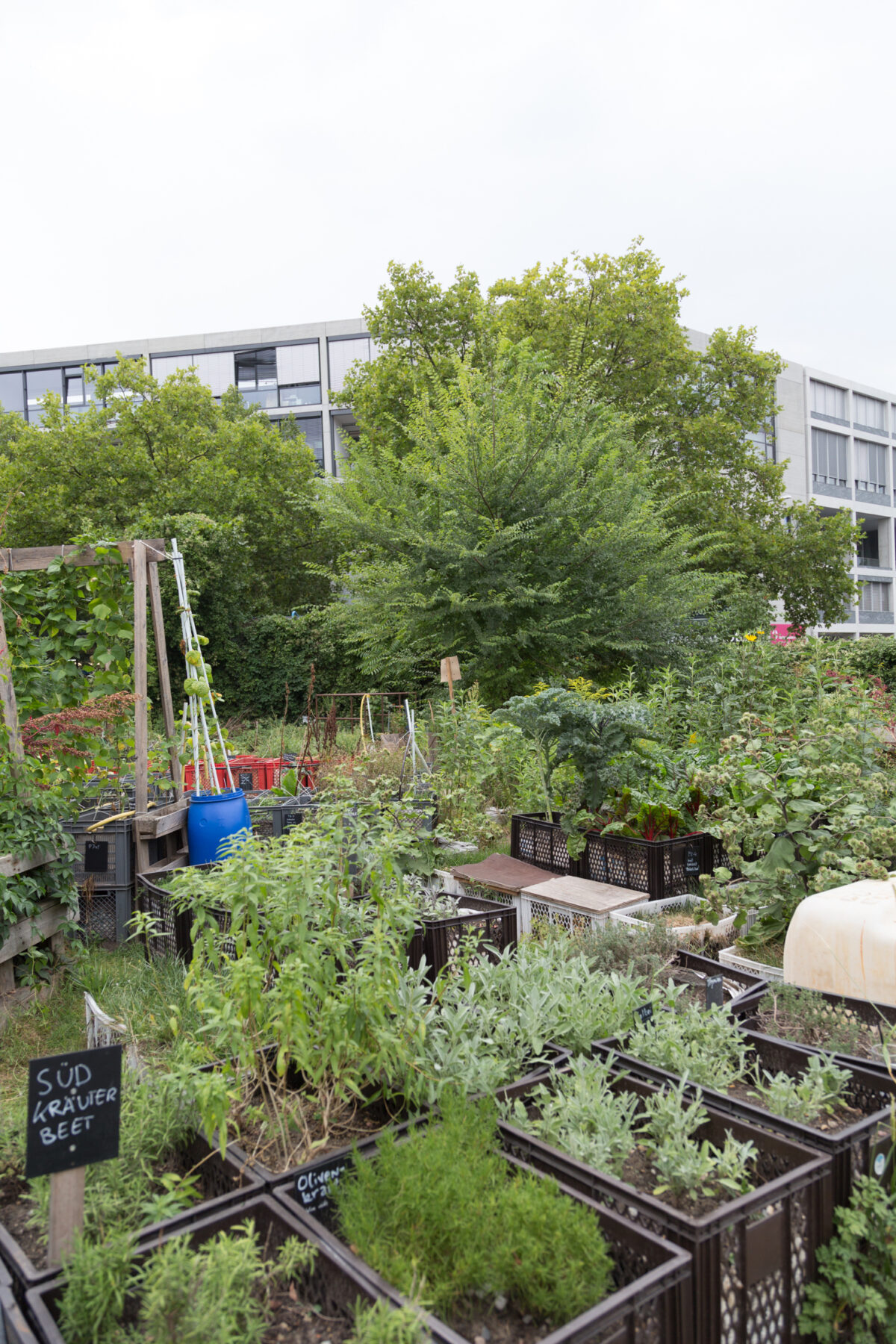
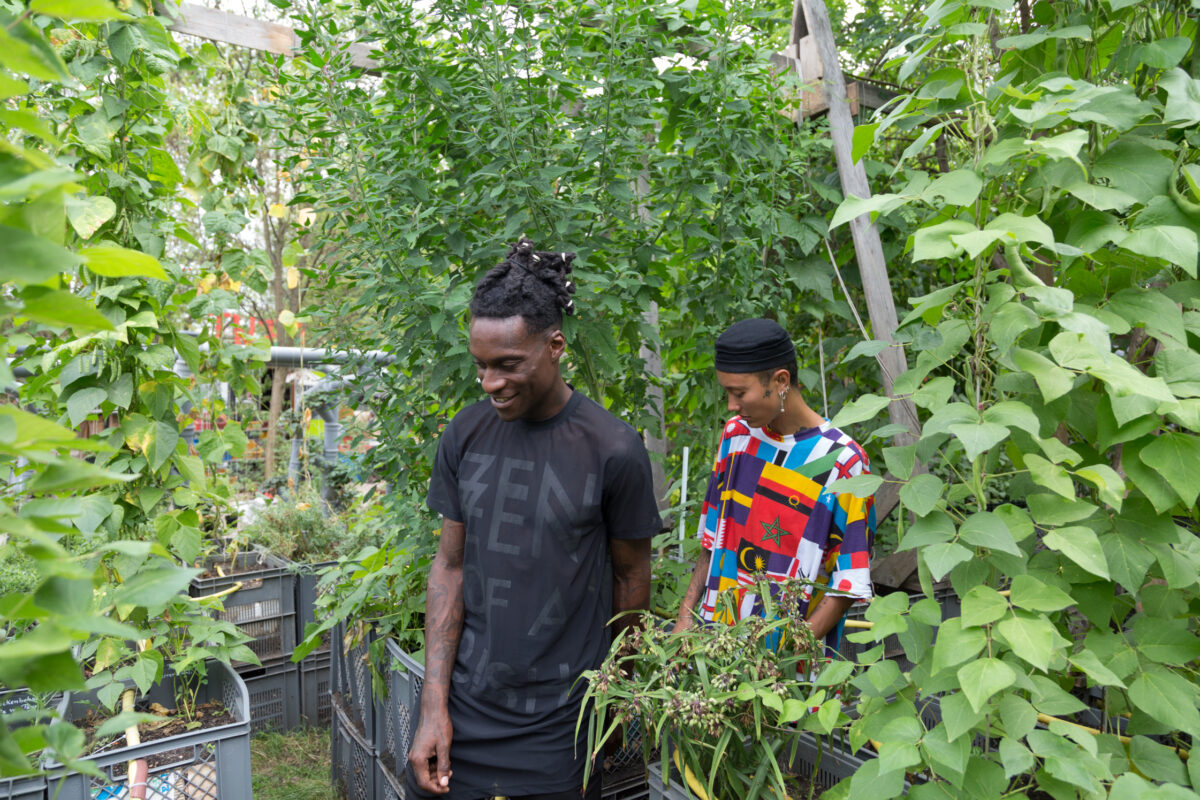
-
Considering this focus on connecting with other people, how important is creative independence for you?
Kirikoo: When I first got into buto (Ed. contemporary expressionist dance form that originated in postwar Japan), none of my friends were interested in it. You need to accept that what you think is great as an artist is not necessarily appreciated by everyone. Now, I don’t really care to be part of a scene. This decision is not about consciously moving away from something, it‘s about staying true to who you are in spite of the mainstream.
Fa’: Independence is imperative to me. I think you can’t put people in a box. I evolve as a person everyday. I meet new people and they change my perception. I just do something that is interesting to me and I like to share my vision with everybody.
Thank you, Fa’ and Kirikoo, for this inspiring conversation and introducing us to Berlin’s beautiful backyard. Make sure to check out Fa‘s eyewear label PAWAKA, as well as Kirikoo’s musical projects on his Soundcloud page.
Photography: Gergana Petrova
Interview & Text: Sina Pousset
